[An interesting part of the British nationalist movement with Colin Jordan being interviewed, sometime around 2003, on many of the events he was part of, including smuggling George Lincoln Rockwell into Britain to attend a NS Movement camp.
Other topics include: Trafalgar Square Speeches; Old Baily Trial; The Birmingham Nationalist Club; The White Defence League; Spearhead; Savitri Devi; Rudolf Hess; and Adolf Hitler.
— KATANA]
Colin Jordan
Interviewed by British Movement
2003
Click here for the video:
https://odysee.com/@SouloftheLost:c/Colin-Jordan-interviewed-by-British-Movement:8
Odysee Description
Colin Jordan interviewed by British Movement
December 22nd, 2022
2 views
Soul of the Lost
@SouloftheLost
36 followers
Join
Follow
These video interviews took place in 2003 and/or 2004* and released in 2005.
The official BM advertisement and Stephen L. Frost, M.A.s book, ‘Twaz A Good Fight: The Life of Colin Jordan (https://t.me/NathanRLawrence/766) give contradictory dates. BM advertisement says “Recorded at his home in 2004.” In Frost’s book on page 3 it says 2003 and on page 6 it says 2004. The DVD by Mad Dogs & Englishmen was released in 2005 as per the back of the cover.
URL
lbry://@SouloftheLost#c/Colin-Jordan-interviewed-by-British-Movement#8
Claim ID
8813975961fc954da8aea17abfd1e71ddcecff00
481.5 MB
TRANSCRIPT
(59:33 mins)
British Movement Presents
British Movement Founder and Godfather of British National Socialism
Colin Jordan
Colin Jordan: At the tender age of 14 – that was 1937 – an aunt of mine took me over there, took a loan. It was a holiday under the auspices of something then called the Anglo Continental Family Centre. The idea was that you got that much more out of a holiday if you stayed with a German family. And that is what we did. I had a fortnight there.
There was a most amazing incident on, I think, the second day that I was there. And I should just briefly say that as a background, I was regarded by the headmaster of my then school as quite a problem. So much so that I believe on one occasion he was heard to remark that:
“Either he would have to leave or I would have to leave!”
Anyhow, this second day came, we were waiting near the opera house for a coach for some excursion, and I looked down the street and I thought:
“This figure coming along seems to look rather like my headmaster!”
But of course it couldn’t be! Anyhow it was! And of all the countries, and of all the places, and of all times, he too would come under the auspices of the Anglo Continental Family Centre to stay with the German family [chuckling]! I’ve never really decided whether he was more embarrassed at seeing me, or I was more embarrassed at seeing him. But it had a good effect because he was struck by the coincidence and our relations were a little bit better thereafter.
Yes, that was 1937. And although I can’t say that then I was really, politically, active, I wasn’t. It was just on the threshold. On the other hand, I appreciated the atmosphere which was most remarkable, and in my experience, unprecedented. That euphoria which was general in in the population over there.
Now, I’d gone there over age of 14, having had something of the hostile propaganda reflected on me. Nevertheless, I’ve been told, for instance, that there’s no such thing as milk readily available in Germany to ordinary citizens. The concentration is on guns instead of butter and dairy products.
Now that rather worried me because I was quite a consumer of milk at that age. I think the first day when I went for a walk in the town, to my surprise I saw milk advertised everywhere. Well, from that time on, as you can understand, I was no longer prepared to accept at faceworth what I saw in the newspapers. So that was a kind of a beginning of an awakening.
But overall, to be brief about it, even though I wasn’t then politically active, I couldn’t have failed to be impressed by the feeling of well being and confidence in the future that was manifest everywhere in Germany. There was a joyfulness! There was a joy in living that I’ve never come across anywhere else and you certainly won’t find in this country today!
The Birmingham Nationalist Club
The Birmingham Nationalist Club was a short lived affair created after I had finished at Cambridge. During the war I was successful in getting what was called an “Exhibition”, which was a minor scholarship, but it was held on one side until the end of the war and I then went to Cambridge from 1946 to 1949.
After finishing Cambridge, I came back to live, for the time being, south of Birmingham. And out of that period we created, myself and several others, we created what we called the Birmingham Nationalist. Now, that really sought to bring together a variety of people, simple nationalists, racial nationalists, national socialists.
Now, that came to an end. Well, no, it didn’t. It wouldn’t be quite true to say it came to an end. Someone else continued it after I left to take up a teaching job in Yorkshire. I came to Yorkshire for several years, turning to a teaching job as a way of gaining plenty of time to pursue my political ideas.
So that really was Birmingham Nationalist Club in a nutshell. A short-lived affair for a variety of kindred people, politically kindred people. It was continued, as I’ve indicated, after I took up this employment in Yorkshire for a time, but it folded up eventually.
[06:22]
The White Defence League
It was created in 1958, roundabout the time of the Notting Hill riots. And I then had the chance of premises in Notting Hill in Princedale Road, number 74 Princedale Road. A building which had originally been purchased by Arnold Leese for the benefit of Britons Publishing Society. Arnold Lease died in 1956 and his widow, not long afterwards, made the premises available to me in place of Britons Publishing Society, who moved to somewhere else in the same part of London.
Now, the White Defence League lasted from 1958 to 1962, when the National Socialist movement was created. No, I must correct that. I must correct that. The White Defence was founded a little later than 1958. It might have been 1959. I’m a little hazy on its precise birth date.
Anyhow, it achieved quite a lot of prominence for a small and short lived venture. By that I mean it resulted in my appearance on the Panorama Program. That has its amusing aspects [chuckling]. In the morning, I was interviewed at the home of a sympathizer in the Nottinghill area. I just don’t recall the name of the interviewer for Panorama, but he was someone who went on to a diplomatic position in North America.
Anyhow, it was quite a fair and quite a lengthy interview, when it was eventually shown. It was really quite good. Now, at the end of that morning interview, I was told that there was to be a second part of things and that was to be at their studios. And that their plan then was to have a number of, I suppose, what we called “showbiz people” present and then go the rounds asking them their opinion of this horrible man and his horrible organization and perhaps give me a little chance of a reply.
So, I duly went along and they’ve got Johnny Danquis and Cleo Leyden, and another fellow now. I forget some of the names now, I must admit. Anyhow, they’ve got a scene suggestive of a kind of pub, and they went around asking these people their opinion, which I need hardly stressed was not exactly complimentary to me and my organization. And then they came back to me. And that was it.
Of course, in that afternoon event, they gave the preponderance of opportunity to the other side, speaking. If only for the morning affair, it was very worthwhile. I was quite pleased when I saw it shown. That was quite a thing for the White Defence League. It had quite a lot of publicity. And although it was in the very centre of Notting Hill, we survived.
In fact, such were the different conditions of those days that we could send out teams of leaflet distributors. And they could go out in that area of Notting Hill and they could put their leaflets through doors and they could emerge afterwards and return still alive! I mean, that wouldn’t be the case today, [chuckling] I’m quite sure! Yes, things were that much different then! We had a wire grill over what was the shop window on the ground floor, on the inside of which we sort of had posters and literature. And the coloureds used to come along, rather like monkeys! They used to shake the grill! But that’s as far as it went. They didn’t do anything more drastic than that.
And so the White Defense League lasted for about a couple of years. It had an amount of publicity out of all proportion to its membership, which is very, very small. And the real significance of the thing, it ended with its amalgamation with something called the National Labour Party, run by John Bean. He got together with me and we decided in favour of an amalgamation. And so that earlier British National Party what was created, with its headquarters at 74 Princedale Road, the old White Defense League premises.
In time, tension reached boiling point over those that wanted to follow a distinct National Socialist course and those that didn’t. And those that didn’t found their leadership in John Bean. So there was a split. And out of that split, John Tyndall and I founded the National Socialist Movement at the beginning of 1962..
Now, we conceived the idea of trying to arrange a meeting in Trafalgar Square as a good launch pad. And [chuckling] to our amazement, we were given the necessary permission. I have to say that after that meeting and Mosley Union Movement meeting that followed shortly afterwards, there was never again, to my knowledge, an occasion when the authorities took the risk of allowing such a meeting.
Anyhow, this Sunday came, I think it was either the first or the second July 1962. And we went along there. We had a huge placard. It was in sections for ease of transport, that Covid the whole of the span of the plinth in Trafalgar Square, “Free Britain from Jewish Control”. Quite [chuckling] striking that was.
And also quite striking was the fact that well before the meeting started, there was a sizable and growing contingent of opponents. At it’s height, I think the crowd came to something in the region of 5,000. But there was about 500 at the front who were largely jews, and if not jews, they were of a Left-wing persuasion. And of course, they showed in no unmistakable way, well before the meeting started, they were there to try and wreck it!
Now we got going, we got three speakers. Denis Pirie was the first one, John Tyndall was the second, and I was the third.
Well, of course, the uproar gathered pace from speaker to speaker, and coming third, I had the full torrent. I must say that we had a fair deal from the police, the likes of which we would not get and no one else would get today. The chapter in charge was a Chief Superintendent Burgoy, and he was a good stick! Really, he could have, if he wanted to, he could have come up with the excuse that things were getting out of hand and he could have stopped the meeting, and stopped it finally at quite an early stage. But he let Pirie carry on.
Although several, I think it was actually five times, he had to ask us to pause while the police fought to restore order. It was that sort of situation. Well, you know, today they’d never ask you just to pause! They’d be putting you in the van and that would be the end of it.
Anyhow, it came to my turn. And I can say that I got within about three or four minutes of the end of my speech when Burgoy said:
“I’m awfully sorry, but it’s getting beyond us!”
And really it was a seething mass down there. Every conceivable sort of object was being thrown at us. And he closed the meeting.
Well, of course, that wasn’t the end of the problem. We had the problem of getting away in one piece. You’ve referred to the front page photograph on the Daily Telegraph and other papers of the battle to get the Land Rover away. I don’t quite remember where John Tyndall had managed to secrete this Land Rover which he was driving, or how he managed to get it back from where he’d hidden it to collect all the gear, you see. But they had quite a fight to get away from the thing.
And as you say, there was Martin Webster wielding this placard. I believe that in the end, sort of Tyndall sort of got going, some Jew got in the way, and I believe part of the Land Rover went over part of the jew! Because there were reports of squirming and screaming and whatnot.
Anyhow, while all this was taking place, I and others were still on the plinth. And some police officer came up to me and said:
“If I were you.”
He said:
“I’d just go to the other side and drop off.”
I thought:
“Thanks for nothing!”
Because they were still swirling about there. Anyhow, it had to be done. And we dropped off.
I remember that in making our way through the remaining throng, there was one Jew and he prostrated himself on the ground and he was saying:
“A jewish curse on you! A jewish curse on you!”
Not that it seemed to have any permanent ill effect on us, [chuckling] but it was quite amusing.
The police closed the underground station for about half an hour, or so, after we’d got through and therefore we were able to get away. And we came out in one piece. And that was Trafalgar Square. [chuckling].
But it had quite an impact. I remember, as an example, I remember an American writing and saying:
“I was having a bath with the radio on. And there came this news flash that a riot had broken out in downtown London!”
That was [chuckling] the Trafalgar Square meeting!
George Lincoln Rockwell: If I were religious, I would say:
“Hitler was the second coming of Christ!”
I think Hitler was a gift from Providence. I think he was so far above anything that I’ll be able to accomplish, that it’s almost sacrilegious for me to speak of myself in the same terms as Hitler.
Interviewer (male): But this is your objective, to model yourself as closely as possible, …
George Lincoln Rockwell: My objective is to carry out what Hitler started! Not to model my own person on Hitler, because this is impossible.
Colin Jordan: We set about arranging this camp with the idea of, if at all possible, getting Lincoln Rockwell to attend, and making the most publicity out of it. So it was arranged that he would fly to southern Ireland to the airport there. And we would pick him up, which we did. We smuggled him across the border. I can give you the details if you want.
Interviewer (male): Yes, by all means, yes.
Colin Jordan: I see. All right.
Interviewer (male): A bit of colour to a notorious event.
Colin Jordan: Yes, indeed.
Well, we got to Shannon Airport on the arranged day. The Air Lingus plane came in from the States, and no Lincoln Rockwell! Well, that of course, really disheartened us. But wisely we decided, well, we’ll stay on another day and try tomorrow. Which we did.
And then to our relief, outstepped from the plane, amongst the other passengers this tall figure that couldn’t be anybody other than George Lincoln Rockwell.
So we set off with him up through Ireland to get to Northern Ireland. Now, on our way down, we had reconnoitered the border, and we had found a little sidetrack well off the main road which we thought would be the way of getting Rockwell across.
So having collected him at the Shannon Airport we spent the day leisurely traveling north. We stopped and had some preliminary discussions on the proposed charter for the World Union of National Socialists. And we got to a place called Monahan, near the border. We didn’t know at the time that there was a hot spot for IRA activity.
Anyhow, we killed time until it would be suitably dusk. The plan then being that the car would go around the normal way through the checkpoint but it would first of all to the suitable point, it would drop off Rockwell and myself. And we would go the unofficial way and then be picked up by the car afterwards.
Something that we didn’t know at the time was that Monahan that day had been playing some other village at football. And in the aftermath the greater part of the population was quite tipsy. So we came to this point on the road where the car went one way and Rockwell and I got off and we pursued our way to the border passing several tipsy people returning home.
Rockwell couldn’t believe that it was that sort of innocent explanation from his experience in the States. He was sure that they were agents of something or other. But they weren’t. Anyhow, we reached the border point there were stakes to impede vehicles getting across and then we had to wait for the car.
Well now there was smuggling going on at that time so the first headlights which caused us to get up from behind the hedge, were a false alarm. It was smuggling going on and we then began to wonder how much longer we were going to be waiting. I then discovered that Rockwell was susceptible to hay fever and was upset by this crouching about in the grass [chuckling]!
Anyhow, before too long other headlights came and it was our car and we got him into England. And we lodged him about three or four days before the camp is due to start at a hotel in Cheltenham under a false name.
Now, having got him into the country and being intent on making the maximum publicity and at that time we couldn’t go wrong in attracting press attention. If you blew your nose and you were in the NSM it got a headline. [chuckling] So we announced that we were going to bring Lincoln Rockwell into the country. Of course he was already in the country.
Well, I think the Home Secretary was a fellow called Brook then, and he immediately went on record and he says:
“We’re not allowing that sort of thing, he won’t be allowed in. I’ve issued orders to all the airport and seaport officials to keep Lincoln Rockwell out!”
To keep out the man, in other words, that was sitting in a hotel in Cheltenham.
Anyhow, about three days after the camp had started, it was a Saturday, I got him out of the hotel in the evening. And in a rather roundabout way got him into the camp. There was a big camp fire and we’ve got all our people around it. And I stepped forward first of all out of the darkness and said a few words which concluded with me saying:
“We had a surprise for them. We had a special visitor, none other than George Lincoln Rockwell!”
And he stepped into the firelight. Well, it was really quite a dramatic scene!
To quote in the subsequent Spearhead trial, witnesses from the Special Branch who had been hiding in the undergrowth period, they said that:
“A tremendous cheer went up, and that was when Rockwell arrived!”
So there was Rockwell in the camp. He stayed about a day and a half and then we smuggled him out.
And having taken a photograph of him in the camp, which we sold to the Daily Mirror, we also set up with a representative amongst the horde of journalists hanging about outside the camp all the time.
We also set up a prospective meeting with Palliamach [sp]. The proceeds of which were going to be divided halfway between our NSM and Rockwell’s organization. But the camp had been concluded. I took Rockwell down to London, lodged him in the Cumberland Hotel, and I went to meet the Palliamach chap, as I understood it, in the Charing Cross Hotel.
When I got in the Charing Cross Hotel, you could hardly move for journalists! They’d obviously got wind that something was going to happen and they’d followed this Palliamach chap when he’d gone to the Charing Cross Hotel. They had gone too.
Well for about an hour or so, I tried to shake them off. I did all the usual tricks like going to the nearest underground station and waiting, you know, until the doors were almost shutting and jumping in. But I couldn’t shake them off. So I just had to leave Rockwell to his own devices.
And what he did was he assumed after quite a time that things had gone radically wrong, as indeed they had, and so he improvised. There wasn’t the prospect of the Palliamach interview. But he got in touch with the Daily Mirror. And he went along and did an interview with them.
He told them in the course of his interview, which was perfectly truthful, that having done this interview he intended simply to go along to Scotland Yard and give himself up. His mission was completed and he’d be happy to go back to the States. But he was picked up by the police on his way between the Mirror office and Scotland Yard. They tipped the police off.
Anyhow, I forget now how I came to know all this at that time, what had happened, but I did. And I went along to Scotland Yard and there again as an example of how different things were in those days. When I got there, he was being treated in splendid fashion, really. He got several senior police officers chatting with him, all big smiles! And I was allowed up there and had a talk with him. It really was quite amazingly friendly.
Anyhow, they did trick us in the sense that they intimated that it’d be quite some time before they deported him. But in point of fact they contrived to get him on a plane, the next morning! But in true Rockwell fashion he had the last word, in the sense that when he got to the top of the steps onto the plane, he turned around, gave the salute, and said:
“I’ll be back!”
Well, I mean, that was Rockwell all over! It, summed it up, no more need to be said, I’ll be back. As a matter of fact, he never did get back. But it was the Right show of defiance, wasn’t it?
[27:50]
Woman: I will remember Mr. Rockwell as a tall, handsome, neatly dressed man that came into the laundromat very graciously. I was impressed with the charm of this individual and I was most happy that I could give him a second washing machine. And I’ll remember him just that way, as a very charming man.
Spearhead
Colin Jordan: Spearhead was created prior to the National Socialist Movement in the later days of the original British National Party. And it was created with the idea of gathering together young and fit members to provide defense at meetings and other activities. I can say in all honesty, for I have no reason to twist things at this stage. I can say in all honesty it was not conceived as an offensive weapon, it was conceived as a defense force! That was during the later days of the British National Party.
And when the split took place and the NSM was created, the Spearhead, to a man, went with John Tyndall and myself, into the NSM. There was a uniform, but it was only used indoors as was permissible in terms of the 1936 Public Order Act, which banned public uniform.
Of course, the authorities kept a close watch on the organization in general and this formation in particular. And eventually they decided to prosecute us under a little, if ever, used section of the Public Order Act, which provided for the prosecution of bodies which either did, or gave, what they called “reasonable apprehension” either did or gave a reasonable apprehension of being intended to supplant the police and to pursue political objectives by violent means. Now, they prosecuted us and the matter came to trial at the Old Bailey, in a celebrated number one criminal court. Lasted a fortnight.
And in the outcome, they succeeded in convicting on the reasonable apprehension part of that section of the law, but failed in respect of trying to establish that we had actually used force. So we were acquitted of actually using force. And as I said, it was never the intention of that formation to use force against opponents. It was defensive. But we were convicted on the grounds of “giving reasonable apprehension”.
Well, that’s a lovely elastic phrase that could cover almost anything. They prosecuted through a man called Griffiths, a barrister called Griffiths, a QC called Griffiths, who had been on the prosecuting team at the Nuremberg trial. And they prosecuted after having raided not only the NSM headquarters, but my home in Coventry, and John Tyndall’s home, and the homes of two other prominent members of the Spearhead, Denis Pirie and Roland Kerr-Ritchie. And all sorts of things [chuckling] which they obtained as the results of these raids appeared as exhibits on a very long table at the front of the number one court in the Old Bailey.
Prosecution witness called Clancy. He was supposed to be a scientific witness to the fact that some sodium chlorate, weed killer, found in the basement of the NSM headquarters was there with one purpose, and one purpose alone, and that was to make explosives, in the offences conducted by the NSM. I can say in all honesty it wasn’t true at all! And I don’t, to this day, know how that came to be. There there was no garden at 74 Princedale Road. There was no need for weed killer, but there were so many oddments down there that it could have got there for mysterious reasons.
Anyhow, Clancy was due to perform. And to perform to the extent of asserting that, this was his theme, that sodium chlorate weed killer was the only readily obtainable household substance that could be used to make exposures.
Well, we had a chap in the NSM who knew a bit about chemistry and he said:
“This is nonsense!”
And he gave me a list of other things, I forget them now at this distance of time, that could be used. And one of them was the old fashioned sore throat remedy, potassium chloride. I think it’s chloride, or chlorate. At any rate, it was potassium something or other, these tablets. And on the morning that Clancy was due to perform, I found time to go to a chemist in Nottinghill and obtain some of the allegedly highly dangerous Pop Chloro [sp] tablets. So there we were. By the way, there was never a vacant seat in the Old Bailey during those 14 days [chuckling]! It was well and truely packed really!
There we were, and there was Clancy. And he said his piece. And I was then really conducting the defense for all four of us. And so my opportunity came to question Clancy. Well, I went through this list that have been supplied by this knowledgeable member of the NSM. And poor old Clancy became visibly more and more distressed. And then I came to what I regarded as, you know, the final stroke. So I asked the court usher to take down to Clancy a box of matches and a Pop Chloro tablet. And I said:
“Now then, Mr. Clancy, will you please taking your right hand the box of matches and will you take in your left hand the Pop Chloro tablet?”
Well, there’s a good, satisfying dramatic pause, and Clancy obeyed. You could certainly [chuckling] have heard the proverbial pin drop in the Old Bailey! Well, what on earth are you going to get to next, you see.
Anyhow, I said:
“Now Mr. Clancy, what I want you to do is with the matchbox in one hand, and the Pop Chloro tablet in the other, take the Pop Chloro tablet and rub it against the abrasive strip on the matchbox.”
Well, old Clancy, he looked at one hand for a moment and he looked at the other hand for the moment. And then he did a little jump back and said:
“No! I don’t want to burn my fingers!”
So that was my cue for saying:
“Well, Mr Clancy, you know, really, figuratively speaking, you’ve been burning your fingers throughout your appearance this morning. I mean, it is nonsense, is it not, that sodium chlorate is the only substance that can be used? There’s all sorts of things, including the Pop Chloro that you’ve been handling so delicately!”
The prison officer who was in charge of the gallery, after Clancy had, thankfully for himself, disappeared, said:
“This is one of the best shows I’ve seen for a long time!”
He said [chuckling]:
“You really embarrassed him!”
So there was good fun.
They convicted us at the end, as I said, on the “reasonable apprehension” part of the legislation, and we endured our terms of imprisonment. In my case, it was nominally nine months, with, of course, admission for so-called good conduct. John Tyndall, six months, and Denis Pirie and Roland Kerr-Ritchie, three months.
But we gave them a run for their money. We used to go back in the evening and try and think out new stunts for the next day, to keep command of attention. And I think, largely speaking, we succeeded. I know that towards the, well, it was at the end of the proceedings, on one day when the ritual was on behalf of my co-defendants, I had to get up and ask for a renewal of bail overnigh. Or else of course, you were bundled off and spent overnight in the cells.
I added to it a request for a subpoena against the then figurehead of the jewish community. And I just forget the details of the matter now, which aren’t very important. The fact was, this came as a fair shock to the audience. And the judge said:
“Well, …”
He was a man called Barry. That’s right. That was his name, Barry. He said:
“I’ll have to think overnight.”
Well, that was all right, because the last editions of the Evening Standard, and Star, wasn’t it? They had this headline on the front page:
“Jordan asked for subpoena against head of the jewish community.”
In the morning he refused. But it had done it’s good work. And we got a good old load of publicity out of it [chuckling].
[38:49]
Savitri Devi
I suppose it might be about 1960 when I first got to hear of her. Then came the time of the Trafalgar Square meeting and subsequent imprisonment, and she came to see me in prison. Not only came to see me, but saluted me in the approved fashion on doing so, regardless of the prison staff [chuckling]! Much to their amazement, I think!
And we then had, oh, I should have said before the imprisonment, she came to England to attend the camp we had in the Cotswolds. That took place, of course, shortly before, in the same year, 1962, that the prosecution against the formation called the Spearhead came about. And we were on trial in the number one court at the Old Bailey for a fortnight. It’s quite a memorable affair.
Yes, Savitri Devi came to see me. She came to the camp and then she came to see me when I was in prison. And I think on one or two other occasions we met afterwards, though it was more probably afterwards by correspondence. I met her in France on a subsequent occasion. I remember that occasion. So I had quite a lot of contact with Savitri. She had a brilliant brain and most extensive knowledge of past history. A very impressive person, too.
Interviewer (male): What’s your opinion of her writings?
Colin Jordan: Well, she gets way up in the clouds to a very considerable extent. I can’t say that in every single respect I follow her line of thought, but basically I appreciate, and agree with her spiritual conception of National Socialism. She sets it in the context of “Ages”, as a belief in resurgence and renewal, reawakening in the course of the cycles of development and decay.
The general principle there I most certainly accept. But as I say, she does lose me a bit sometimes with the the depths of her understanding.
[41:40]
Rudolf Hess
I have to start off by vividly remembering my father coming upstairs to my bedroom in 1941 to tell me that he just heard the news about Rudolf Hess’s landing! Of course, he hoped that that was going to lead to a termination of the fratricidal struggle, because neither of my parents were in favour of the war. They weren’t sort of politically involved, as I later became, but they certainly had no enthusiasm for the war.
But of course, we all know what happened to poor Rudolf Hess after parachuting down. And I continue to feel very strongly on this issue of Rudolf Hess. Certainly from the end of the war. In the earlier British National Party, we for instance, we produced a large, fairly large poster in support of the release of Rudolf Hess, which had supporting details from a number of other organizations. It was a joint effort, that one.
We put that sort of poster in favour of Rudolf Hess up in prominent places in the West End of London. We did what we could to certainly raise the issue and it continued to be a burning an issue with me right up to at least the time of his death.
I visited his wife on a couple of occasions. She by then was living at Gailenberg. She had a guest house there. And on the second occasion I spent a week at this guest house with my mother. She had, of course, Rudolf Hess himself was adept at English and he had quite a large library of English books, all of which ended up in the guest house at Gailenberg. And they were able to have a look at some of them.
Frau Hess stressed to me in conversations how devoted her husband had been to the idea of Anglo German friendship, how horror stricken he was when it came to war, and how he had staked all on his heroic attempt to end the war!
I was then in touch with, and remained in touch for many years, with a man called Tom Graham. He lived for part of the time in Australia, but for part of the time he lived in the Newcastle area in England. And he was a very devoted man. He’d undergone and suffered a lot for his beliefs. And he put them first in his life and lived quite simply in order to do what he wanted to do in support of those beliefs. And Tom Graham, it was him, he came up with the idea of a memorial at the spot where Rudolf has parachuted down.
Well, by then I had explored the area myself. It’s not far south of Glasgow, in the Eaglesham area, and I’ve been pleasantly received by the then farmer. I went along unheralded and he was very pleased to take and show me where he got a stone. I don’t quite know how he had arrived at that exact spot, but he had a stone to mark the spot where Rudolf Hess had parachuted down. His plane, of course, had crashed a short distance away, not on that actual farm.
Well, I told all of this to Tom Graham, and although Tom was must have been getting into his 80s by then, he took it upon himself to go up there, visit the spot himself, visit the farmer, get the farmer’s agreement to a memorial stone. And a very fine memorial stone he had made. I forget where he was made now, but it really was very fine.
[See the following for the full story and additional images:
https://knowledgeispower.life/smashing-the-peace-stone-by-colin-jordan-1999/]
It was worded to effect to mark spot where Rudolf Hess had parachuted down in attempt to end the struggle between Britain and Germany. There was nothing that you would say in mentioning that important fact was offensive, not at all.
And anyhow, Tom goes up there and with an equally elderly friend of his, they receive, in whatever manner it was, this finely engraved stone and they set it in cement with a border of stones, and the finished job was shown by photographs I have of it was very, very good indeed.
Now, I suppose, really, with the wisdom of hindsight, it was something of a mere miracle that it lasted as long as it did! Because it did last about six months, during which time Hess’s son, Wolfgang Rudiger Hess [Nov 18, 1937 – Oct 21, 2001], went up there and saw it, much to his delight. And even entertained the rather fond hope that some kind of gathering could be held there. I must admit I was a bit uncertain about that as a possibility.
Anyhow, it lasted about six months and then none less than a [word unclear], Aamer Anwar who was the local official of the Anti-Nazi League, he took advantage of the farmer being away at some stock sales or whatever it was, to take along by prior arrangement, a sledgehammer and a filming team.
And so there he was, this character performing in front of the cameras, using a sledgehammer to destroy the monument to a man whose boots he wasn’t fit to lick!
I tried for a long time to bring the authorities in one way or another, at one level or another, to do something against this individual for this act. But of course, they covered up for him. I mean, they were quite happy to see it down, I’m sure, in that way.
The farmer himself behaved very well, really. He despite the tremendous harassment, as you can imagine, he suffered over the matter, he still said good words in defense of his purpose in having the site marked it that way.
I’ve not been up there since. And that, of course, was a number of years ago. Well, that was it. The monument to Rudolf Hess’s, really unrivaled feat of personal heroism! To fly into enemy’s sky in the midst of a war, with the idea of making peace, it’s awe inspiring! Awe inspiring! The man should never be forgotten, and always honoured for that tremendous, ….
Unfortunately, his son, who I kept up regular correspondence with, his son had a kidney trouble and died about two to three years ago. But not before he had written two books.
You may be acquainted with them. The first was the general story of his efforts to secure the release of his father. And the other one was exploring and asserting the theme that he’d been murdered. That this story of this poor old man who really couldn’t raise his arm because of arthritis and age to the necessary height to hang himself, and nevertheless hanged himself! He was done done away with!
Hoess’s contention, very firmly was that there was a distinct prospect, for their own good reasons, of the Russians at long last agreed to his release. And, of course, the fear with the British and the Americans was as to what he would disclose, if and when he was released. I mean, they just couldn’t stand the prospect of that.
I am firmly convinced that Hess’s son is absolutely right, and that he was, in fact, done away with Rudolf Hess:
“The party is Hitler. But Hitler is Germany just as Germany is Hitler.”
[51:52]
Adolf Hitler
We can and we do need to look to the National Socialism of the 1930s as providing guidance. Guidance not only in ideas and plans that were formulated, but in the vigour, the devotion which it’s followers then applied. There has been no comparable intensity of belief and of service, I’m afraid, in Britain, in recent times to bear any comparison with Germany.
My brief visit for a fortnight in 1937 showed me the euphoria that prevailed. It showed me a nation which had risen from defeat to be proud and confident and joyful! There was a joy of living which was inescapably present and which I felt even as the answer in the Germany of those days. And that was due, of course, to the work of thousands who supported him. But at the centre of things, to the inspiration of this one man, this virtual creator in the modern sense of National Socialism.
He arrived on the scene when the jeopardy of the Ayrans was becoming more and more pronounced, nowhere near as grave as has become the case since his demise. But nevertheless, he came at a time when the jeopardy was very serious. He gave us by his ideas and the force of his personality and the inspiration that that provides. He gave us the opportunity to halt the drift to destruction. And unfortunately, this country took a leading role in bringing it to defeat.
I constantly wake up in a kind of perspiration in the night to think of this. The extent to which we’re not getting each day nearer and nearer the millennium, but further and further away. To contemplate what was our opportunity in 1939 if instead of going to war against brother nation Germany, we had linked with Germany in furtherance of the interests of our common race. It’s the most painful thought, always coming to me.
He was the greatest champion the Ayran race has ever seen, or is ever likely to see! That I am absolutely persuaded!
Of course, if you want to sit back and dissect every single happening of the past, you can produce a list of things you think were of the nature of comparative mistakes. But when I contemplate in what lays greatness, in what he presented, in salvation of the human race, then all the rest pales into utter significance.
All the stories of what he did wrong and all the hurt that he inflicted, to my mind pale into insignificance in comparison with what he did and what he offered. There’s never been anyone else in Ayran history who has come forward as such a champion of our race, and who has offered such an opportunity. And in the short period that was allowed to him, his achievements were monumental!
And so I’m happy to say today, all these years later, what I said in Trafalgar Square in 1962. And that was:
“Hitler was right!”
Adolf Hitler:
“We succeeded in giving the Germans a new idea, in uniting our people in that idea and in leading them to a new way of life. This is this century’s greatest achievement for our people.”
I firmly believe today, as I have always believed, that this is the struggle, the struggle for what reasonably you can establish as the values of life, which is the justification and the explanation and the valuation of life. I firmly believe that even if it could be proved to me that we don’t stand an earthly chance of success in the conventional sense of attaining power, that nevertheless it’s a necessity of being, to fight the good fight as you see it, to the best of your ability. That in itself, I am firmly convinced, is always a victory! What is always a defeat is if you fail to struggle to the utmost of your ability for what rationally you believe in.
Therefore, although I cannot say that my life, so far at 81, has produced great results in the conventional way of analyzing, I’m satisfied that I have put my life to good purpose, and I have derived great satisfaction from my success in annoying and harming my enemies and what they stand for! I think it has given the meaning to my life.
Of course, obviously, no one but a fool would reflect on his life without seeing things which could be been done better. Now, that, of course, is perfectly true. But any idea that I would look back with the wisdom of hindsight and say it’s been some kind of gigantic mistake to have pursued the political crusade that I’ve done that is entirely foreign to my outlook and nature. I could have wished, of course, to have done many things better. I could have wished to obtain more success in many ways. But I am satisfied that I put my life to what I regard as good purpose. Fight the good fight, and that’s a victory!
[59:33]
[END]
============================================
See Also
Mark Collett – The Queen Doesn’t give a SH*T About You – Jan 7, 2022 — Transcript
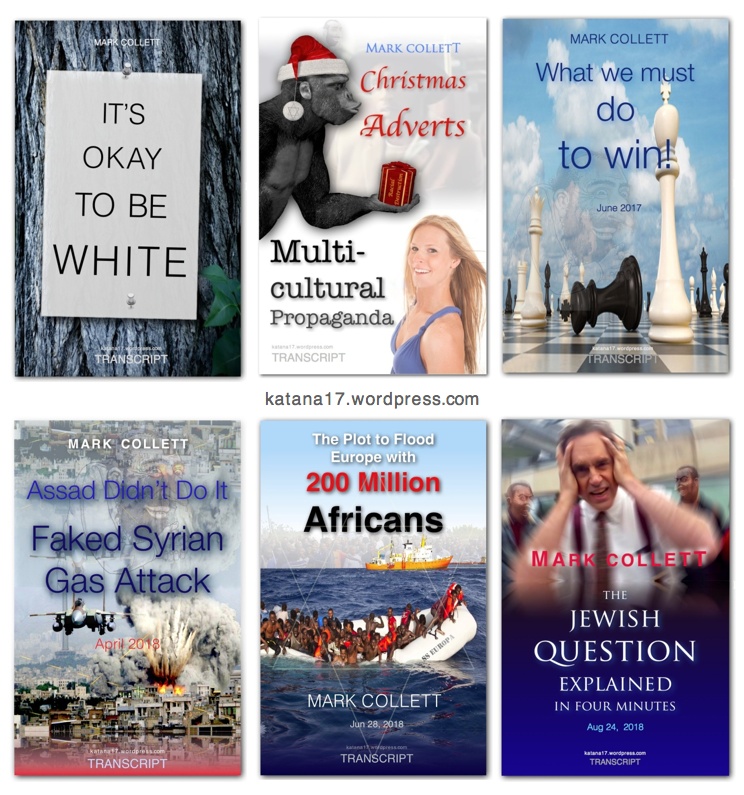
Mark Collett — It’s Okay To Be White — TRANSCRIPT
Mark Collett — Christmas Adverts – Multicultural Propaganda — TRANSCRIPT
Mark Collett — What We Must Do To Win — TRANSCRIPT
Mark Collett — Assad Didn’t Do It – Faked Syrian Gas Attack — TRANSCRIPT

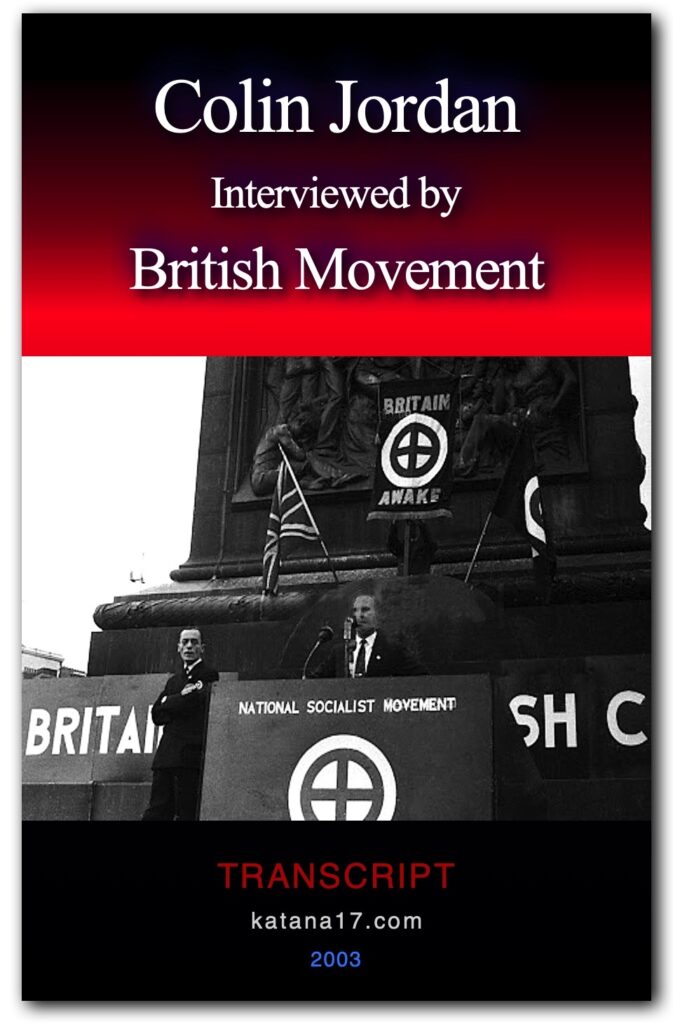
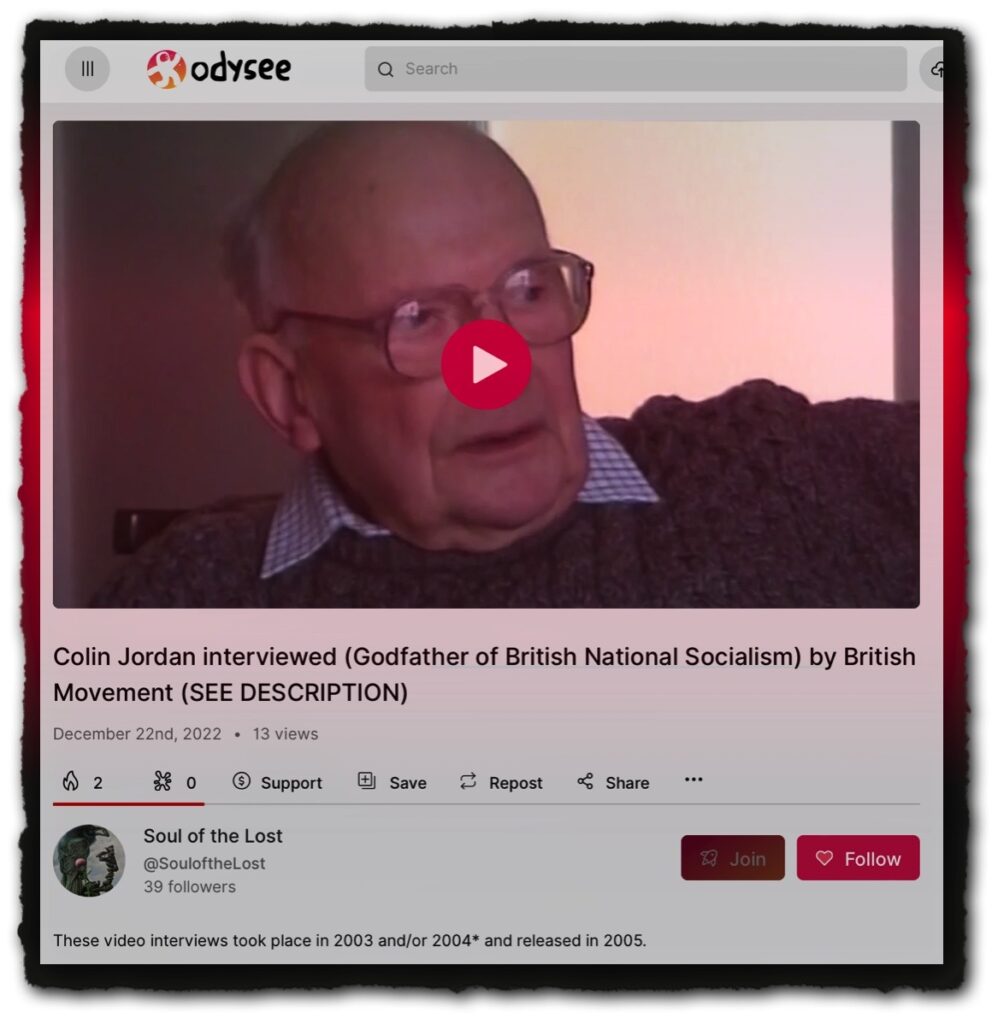
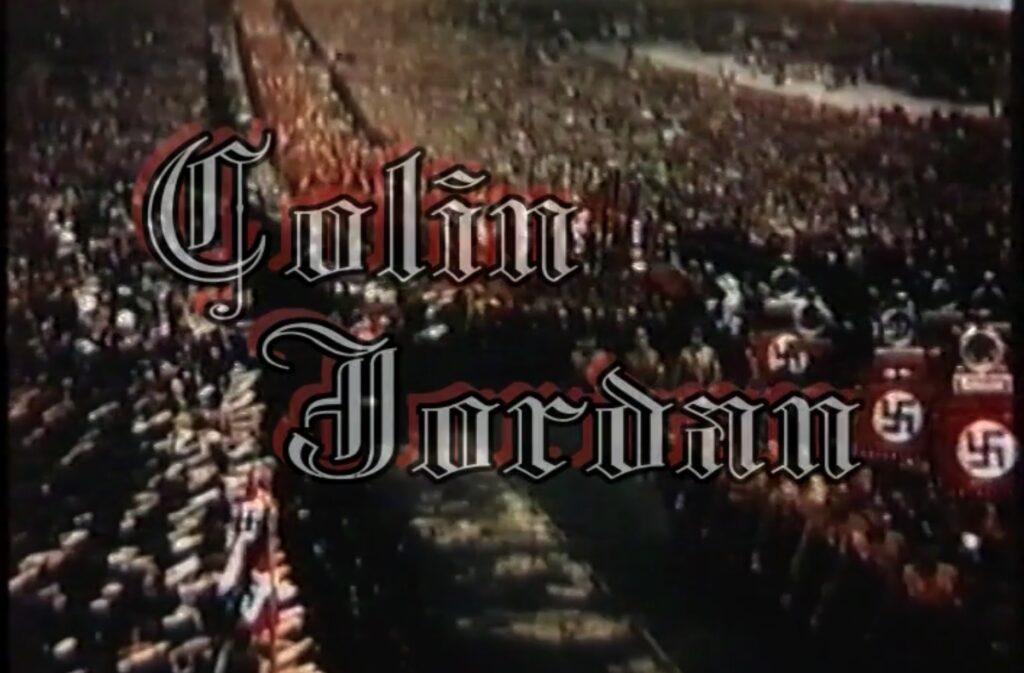
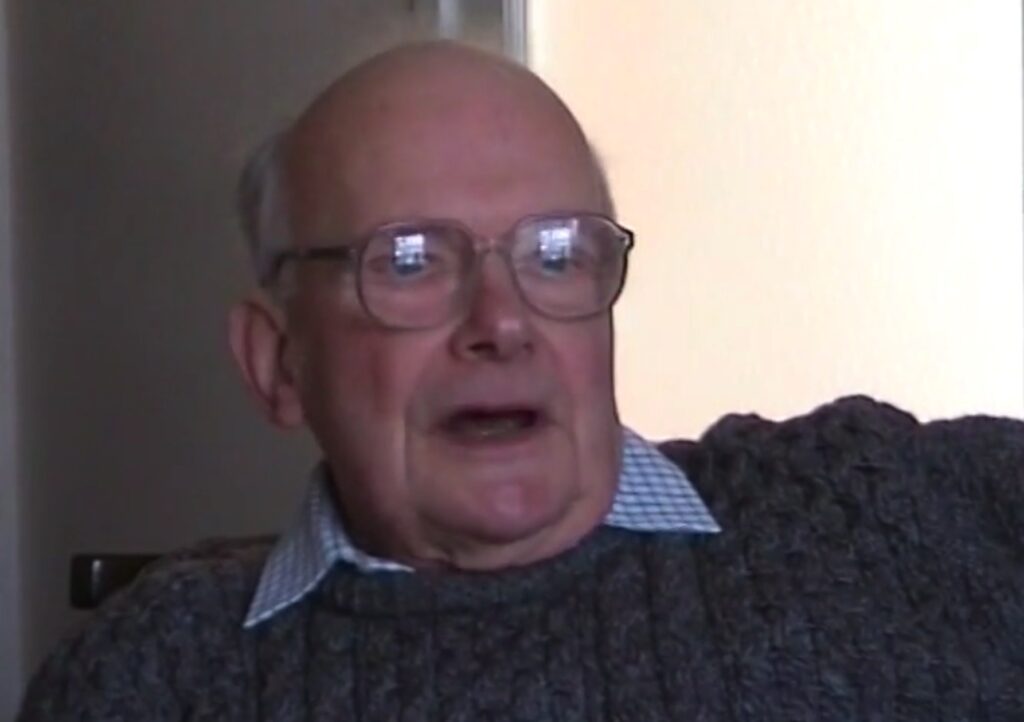
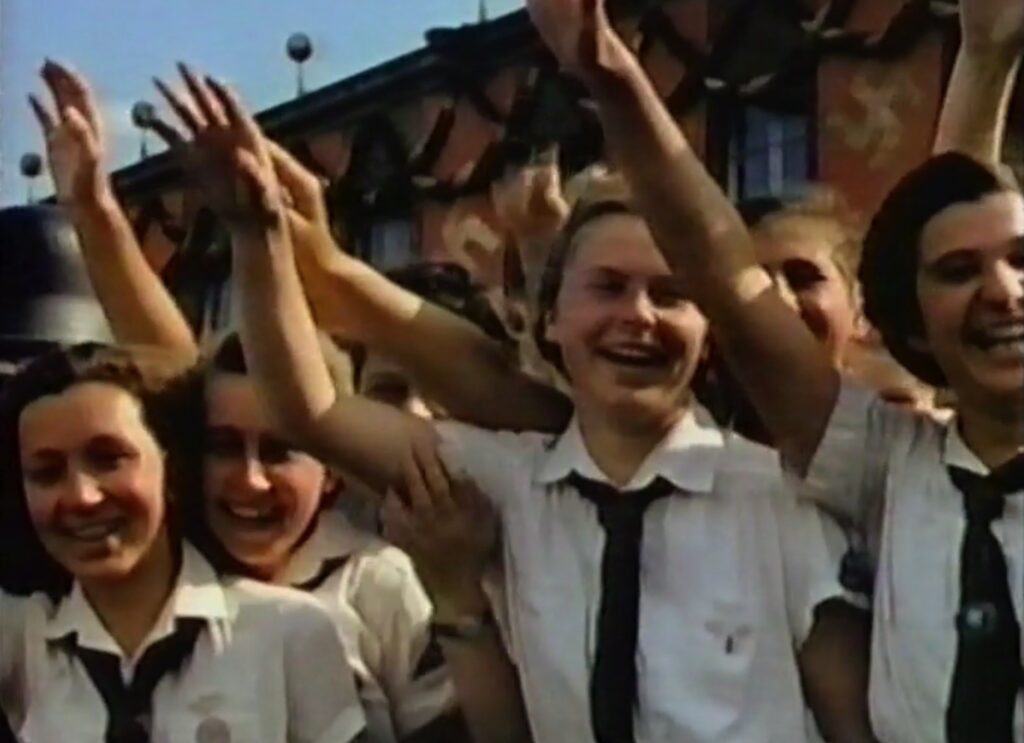
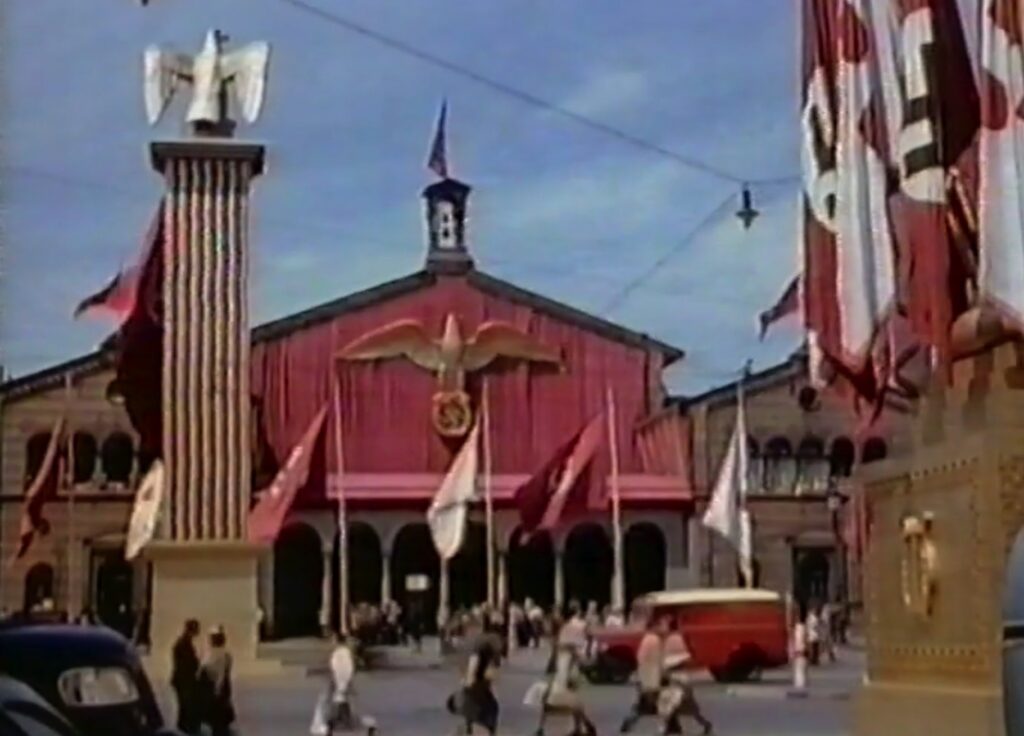
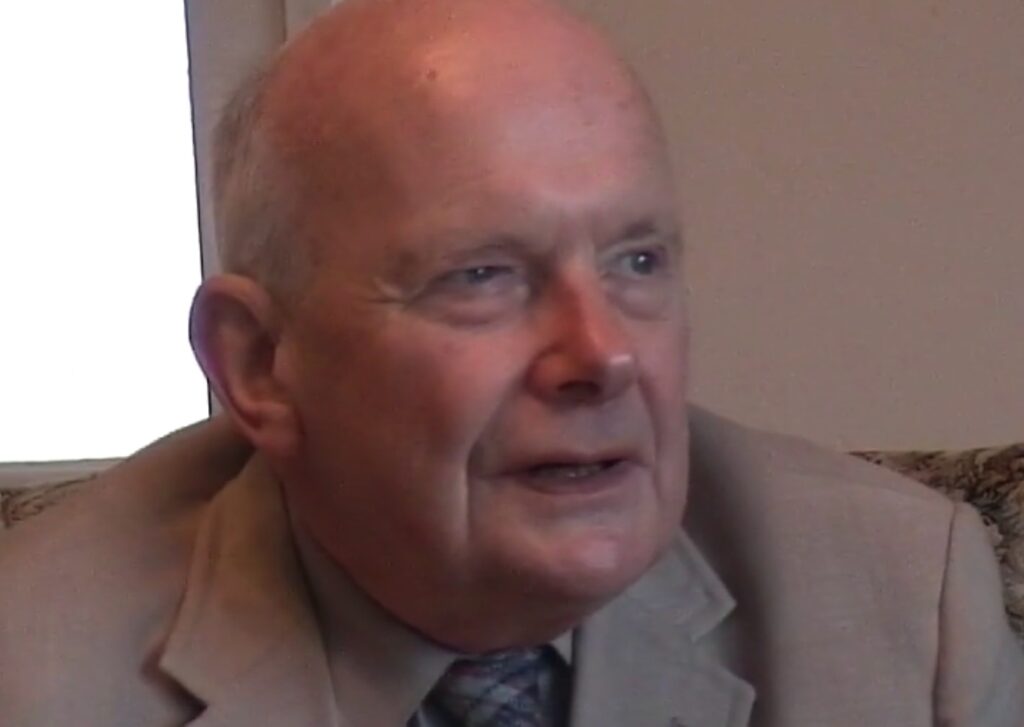
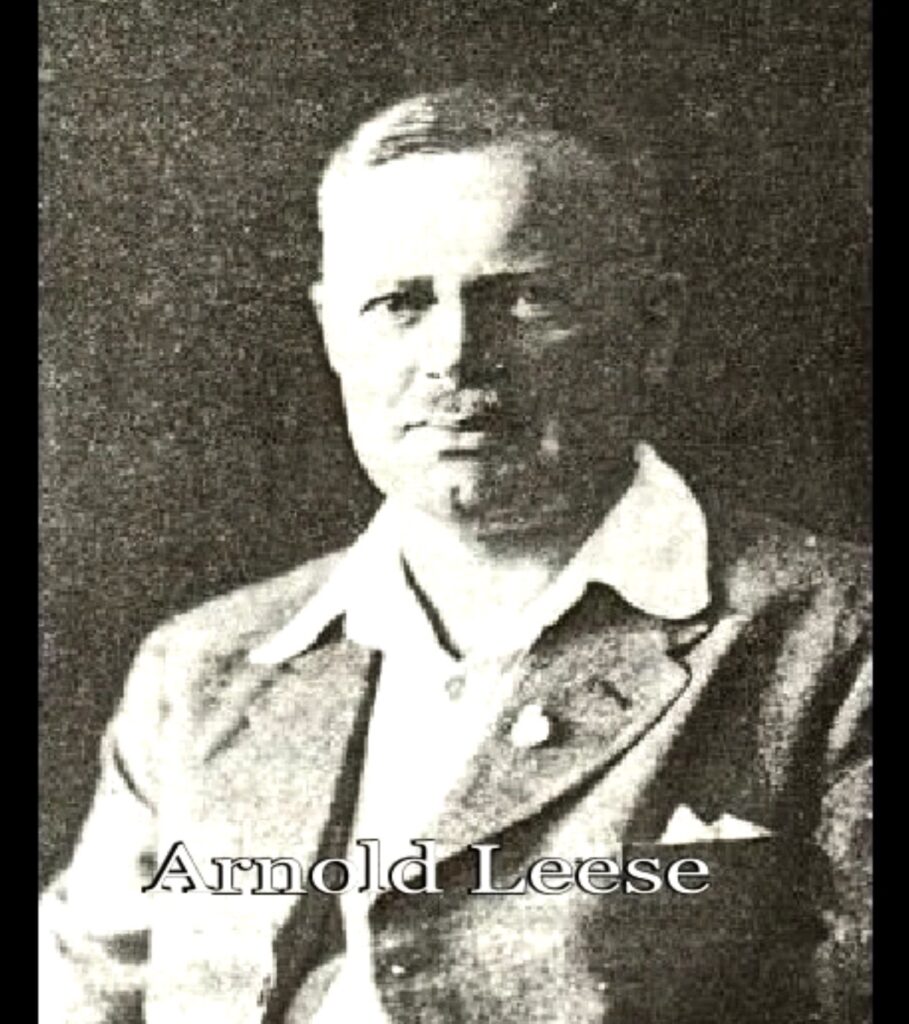
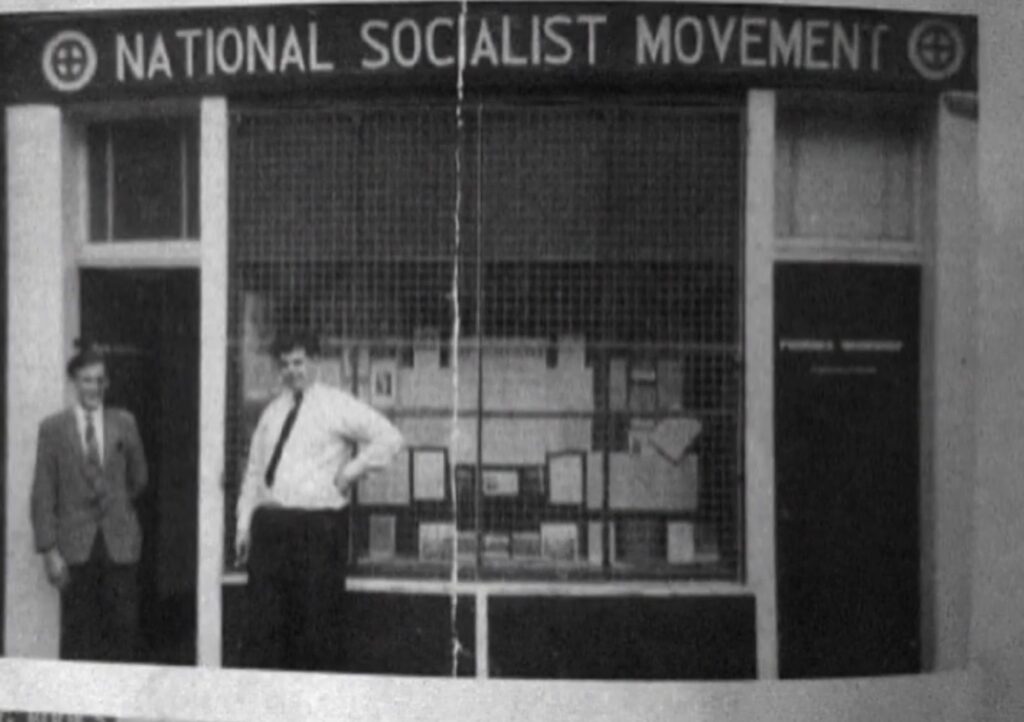
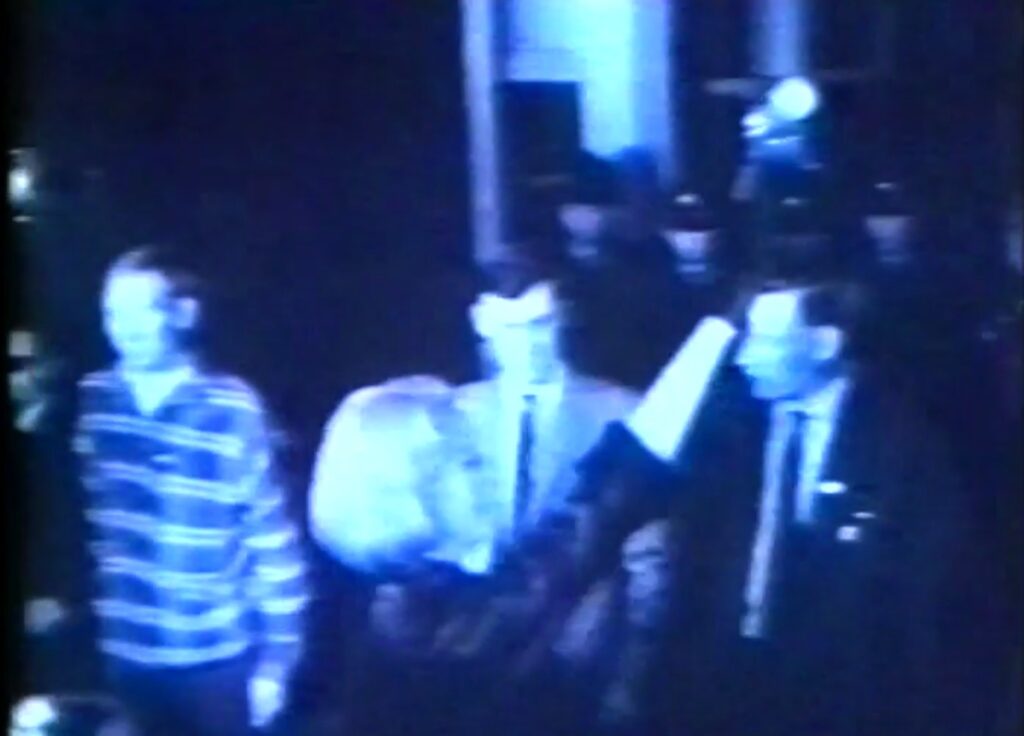
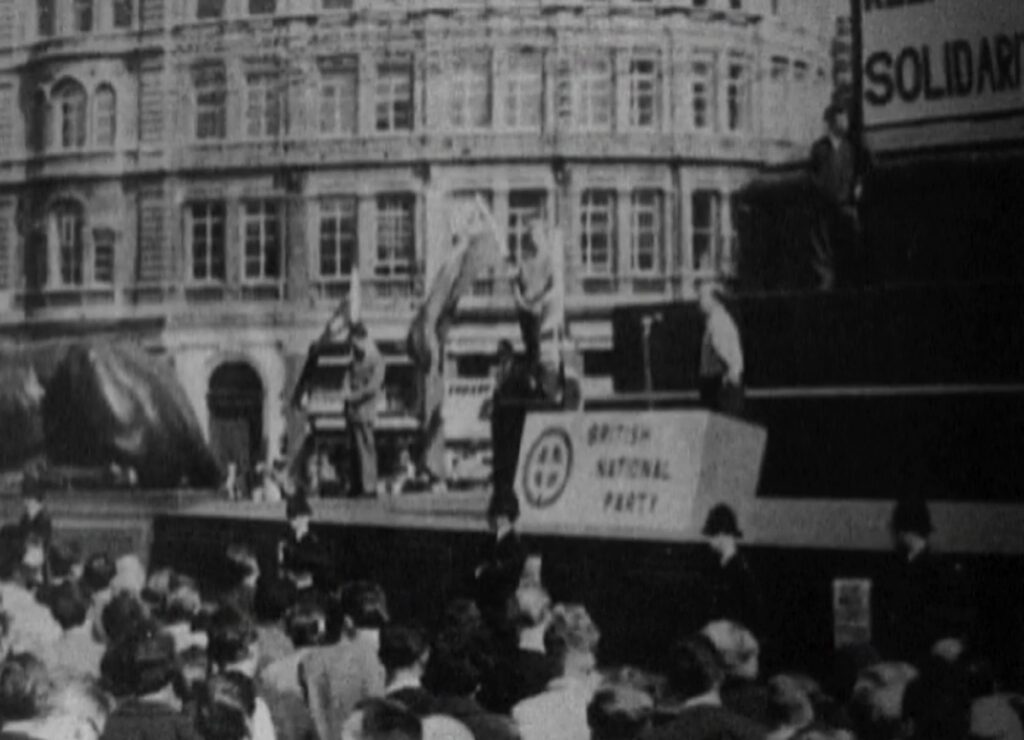
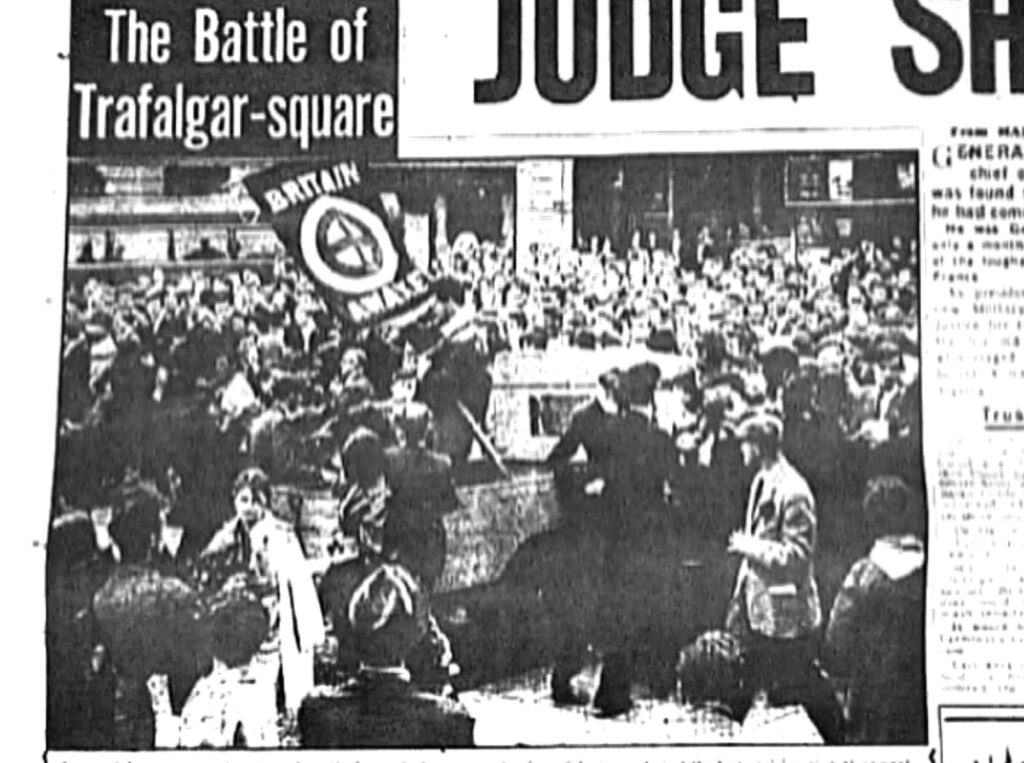
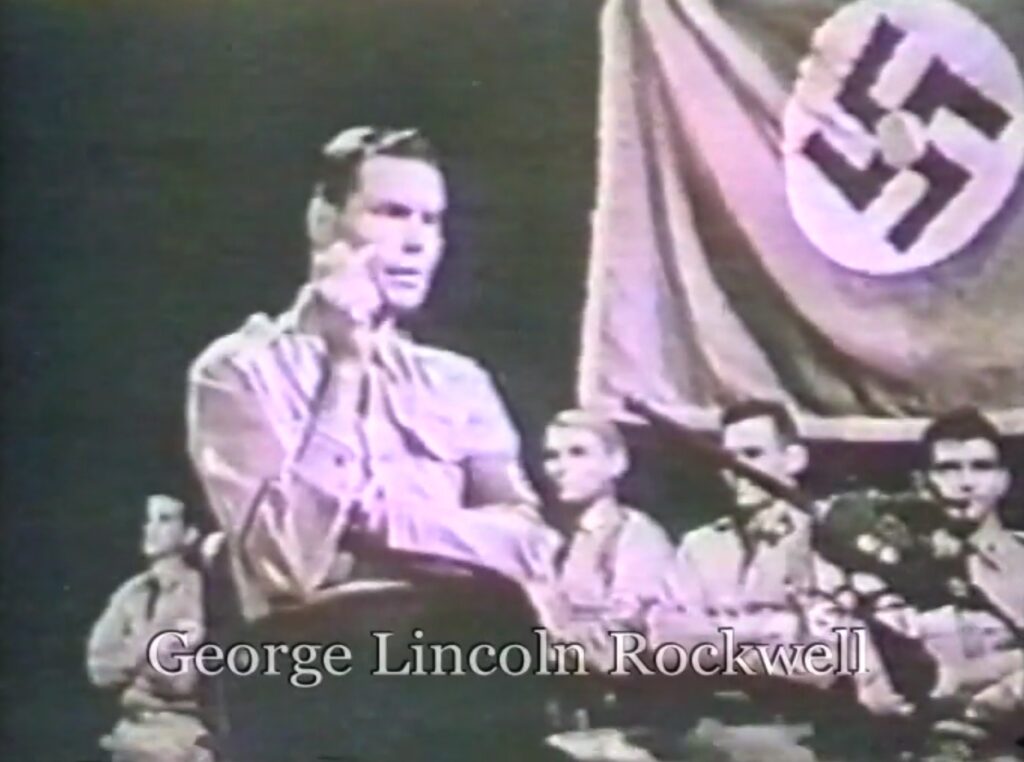
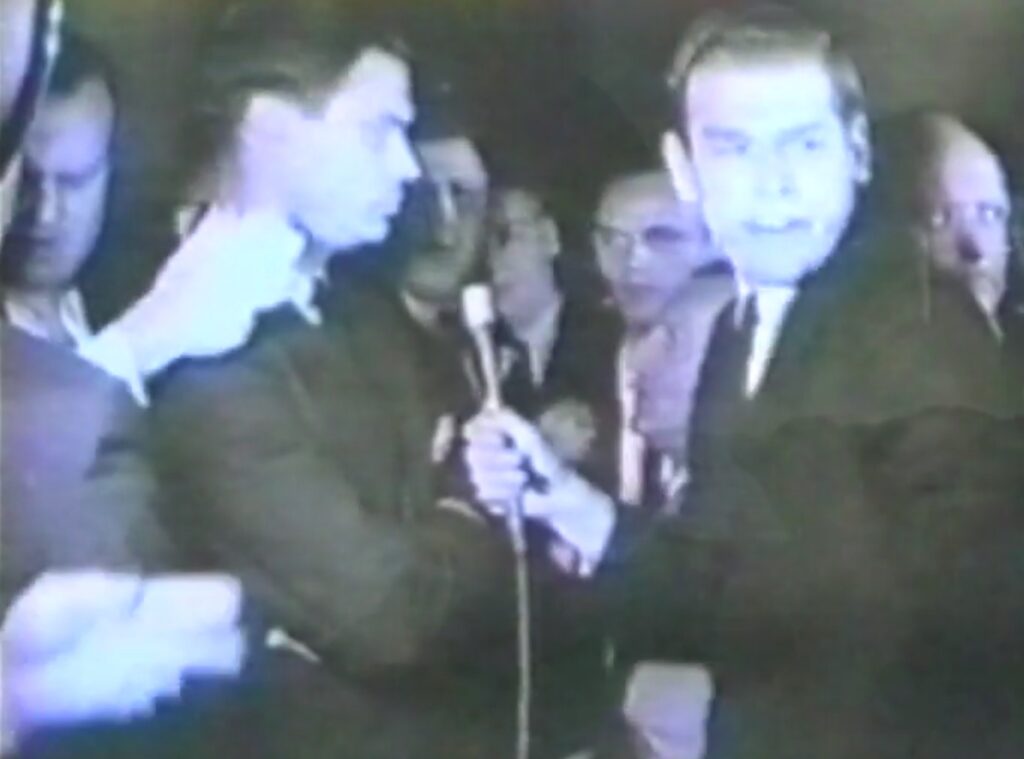
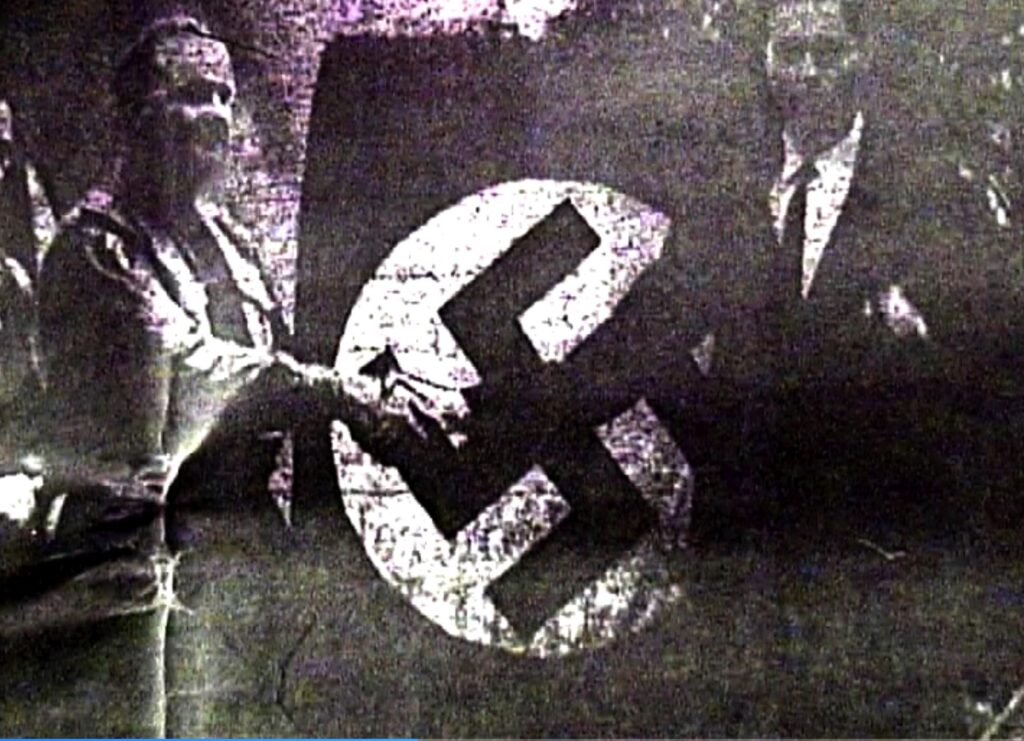
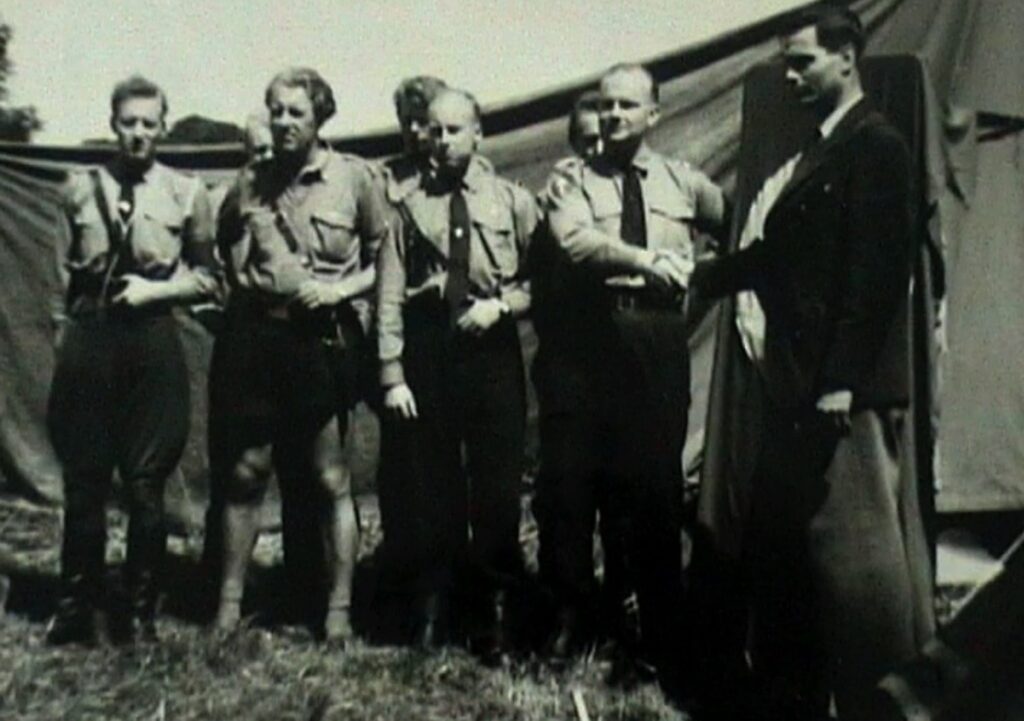
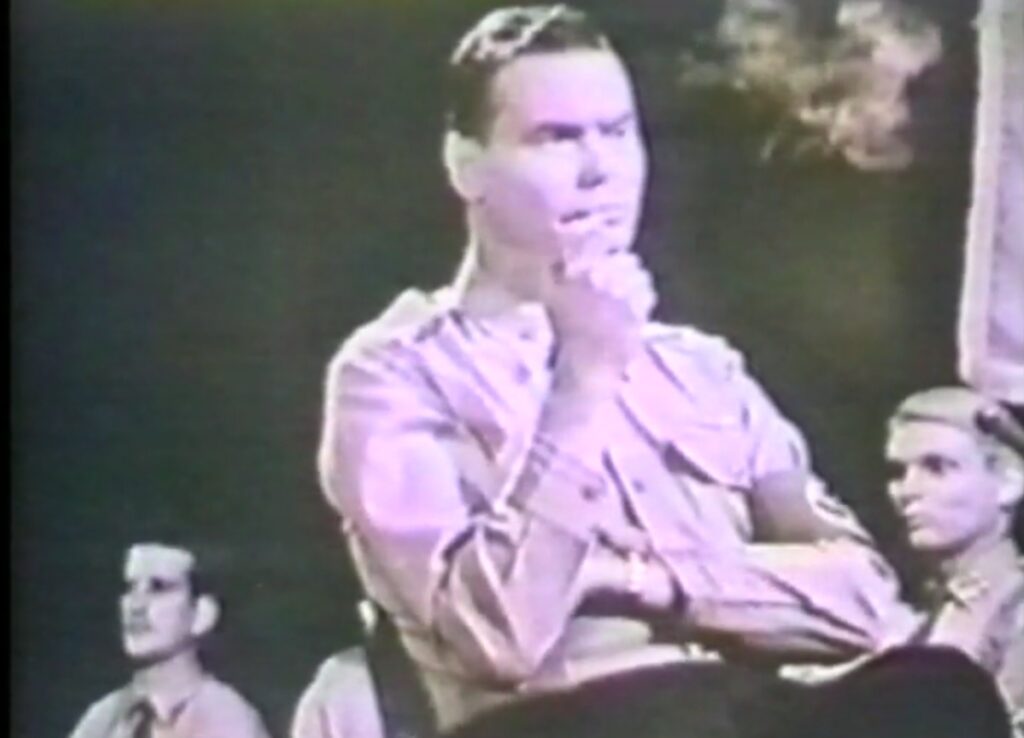
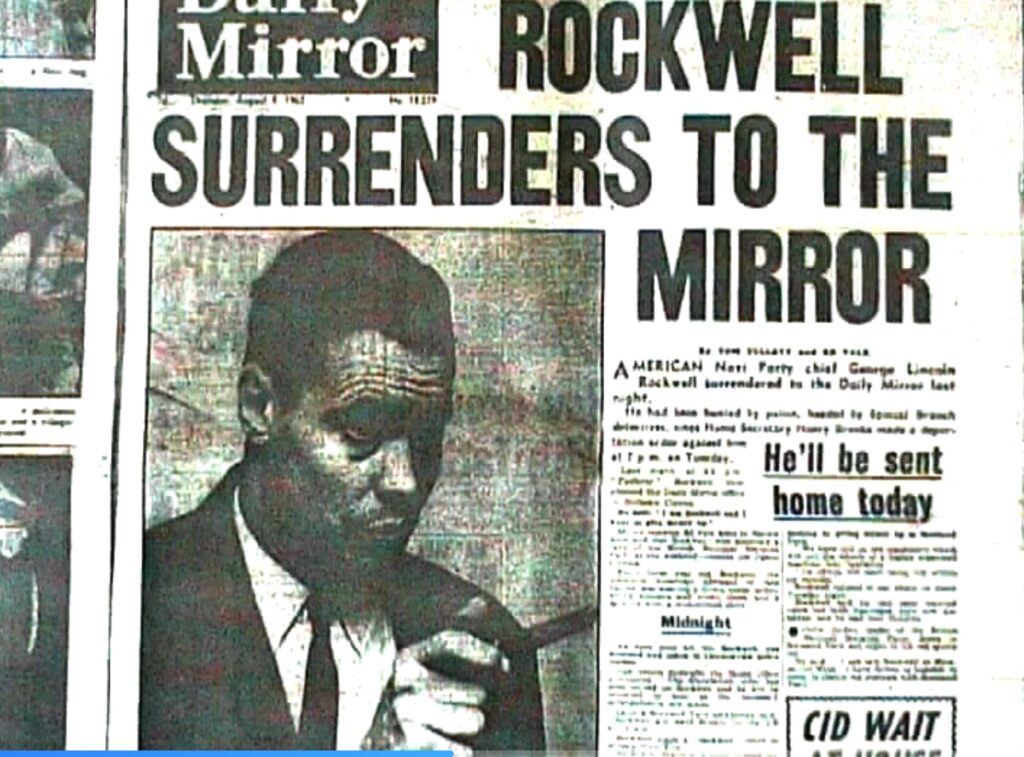
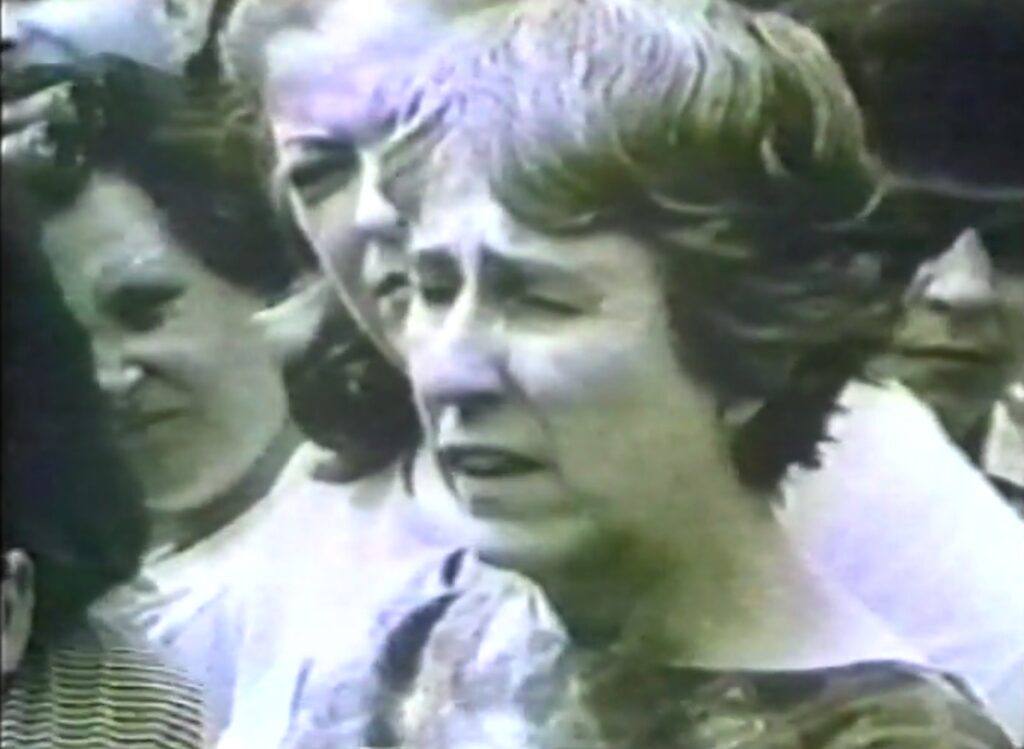
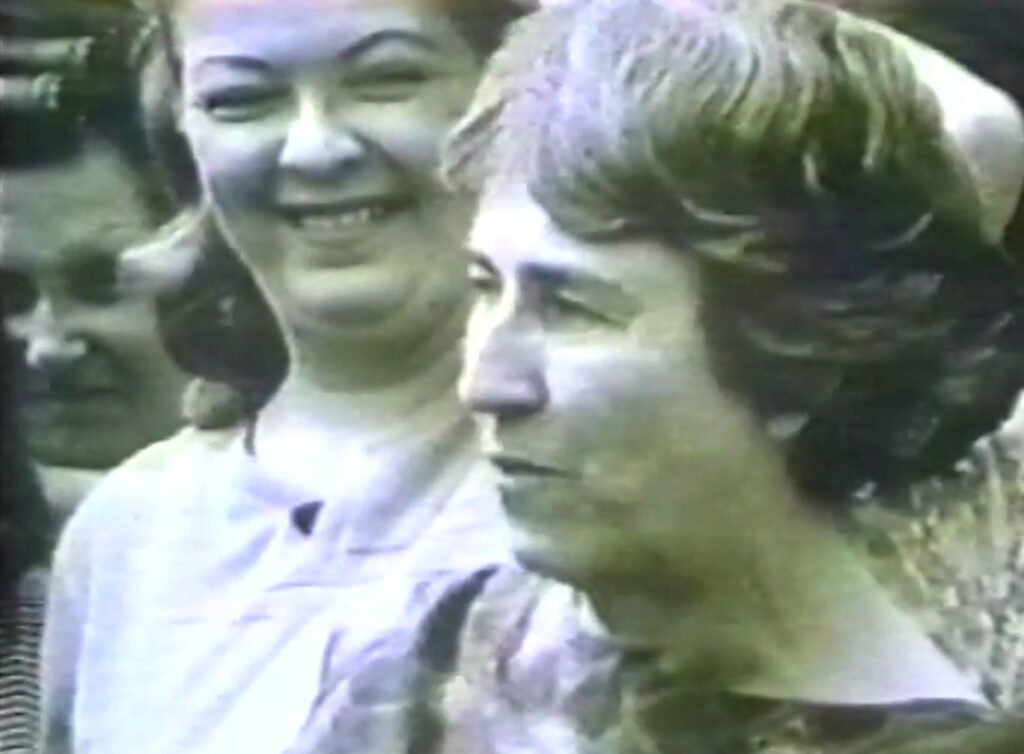
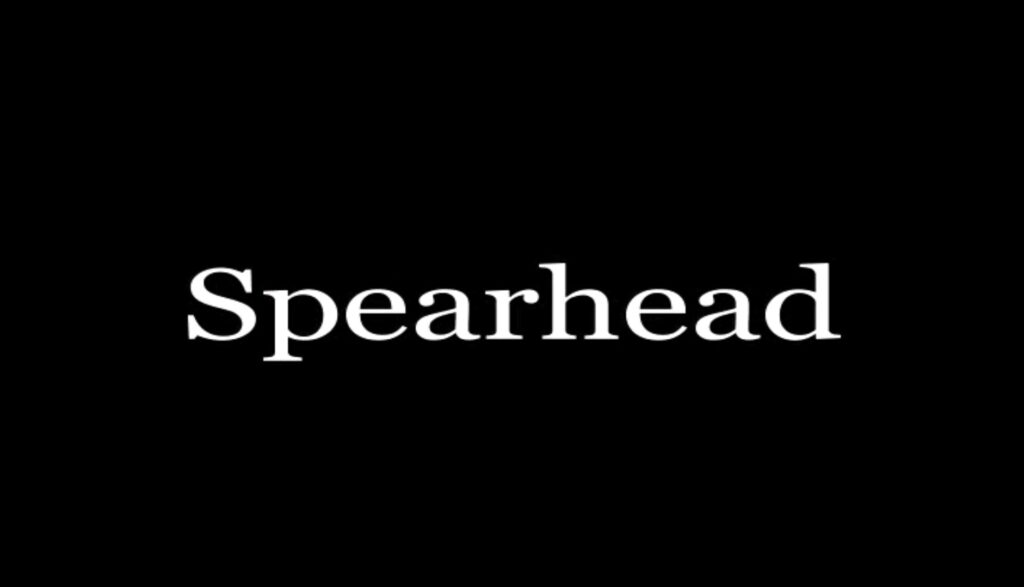
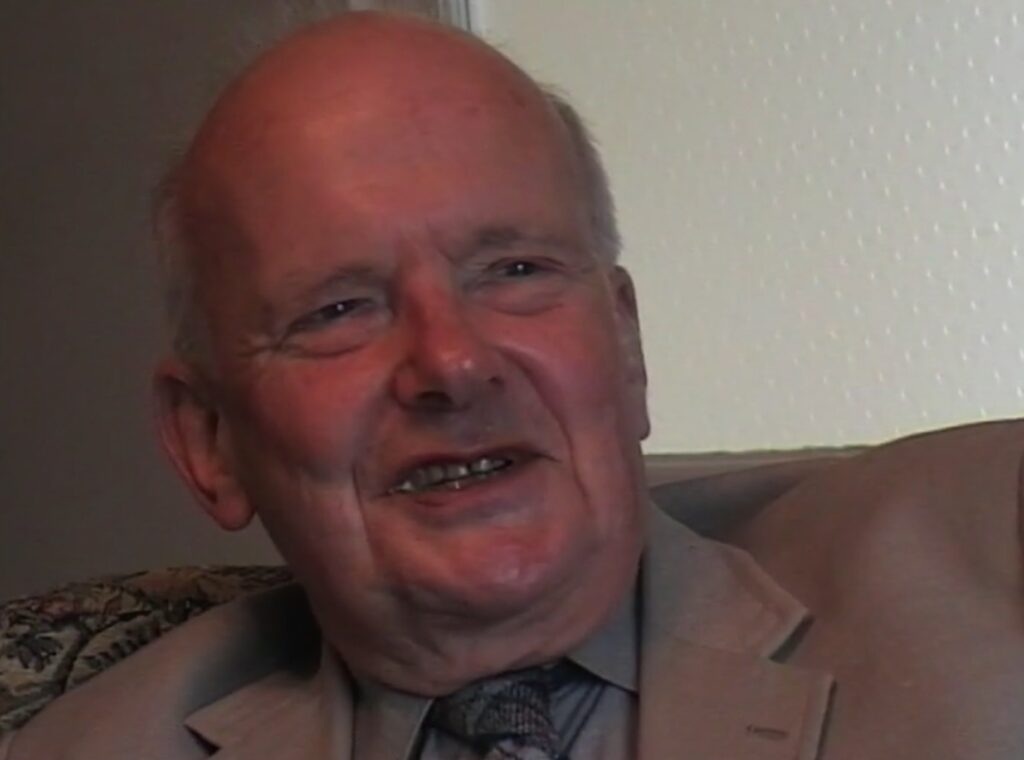
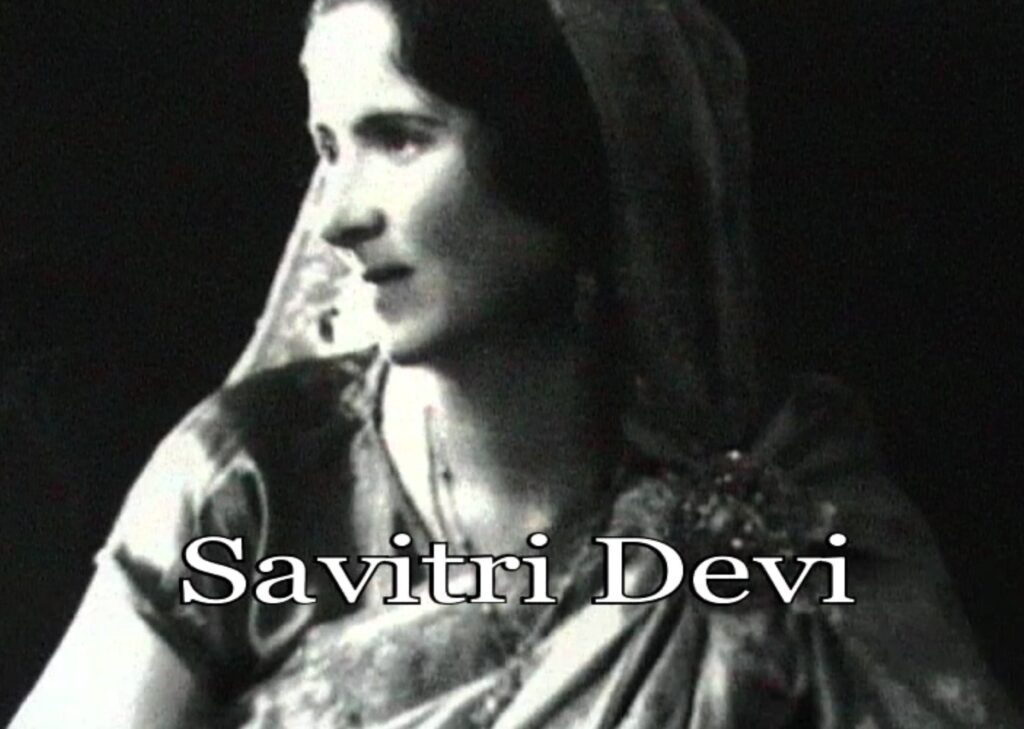
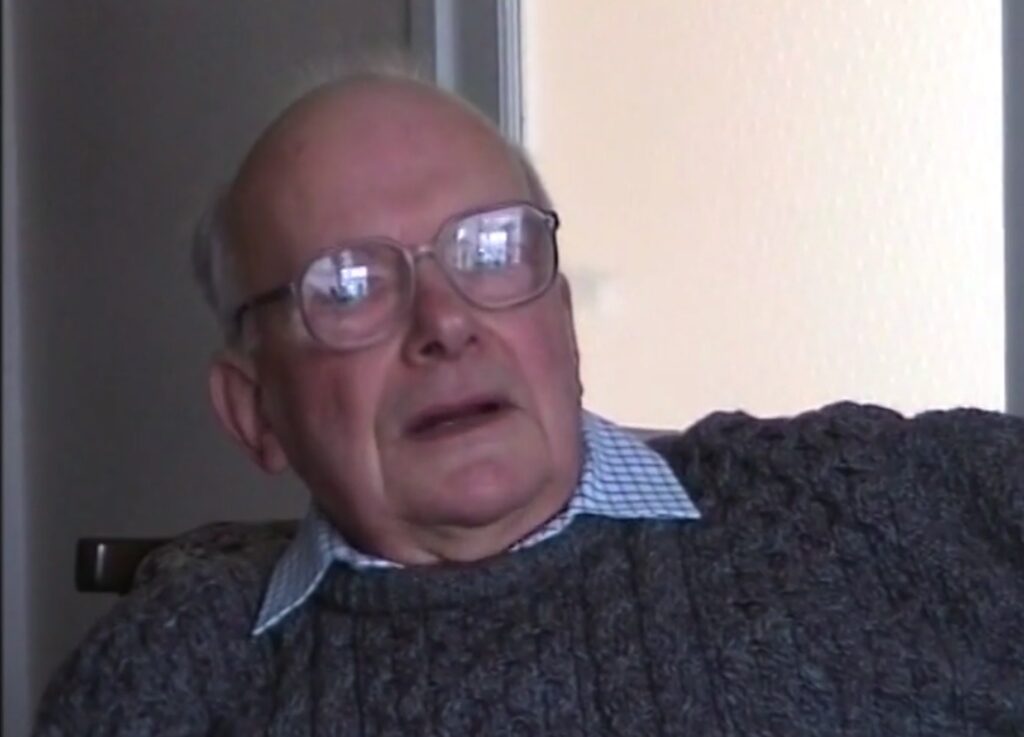
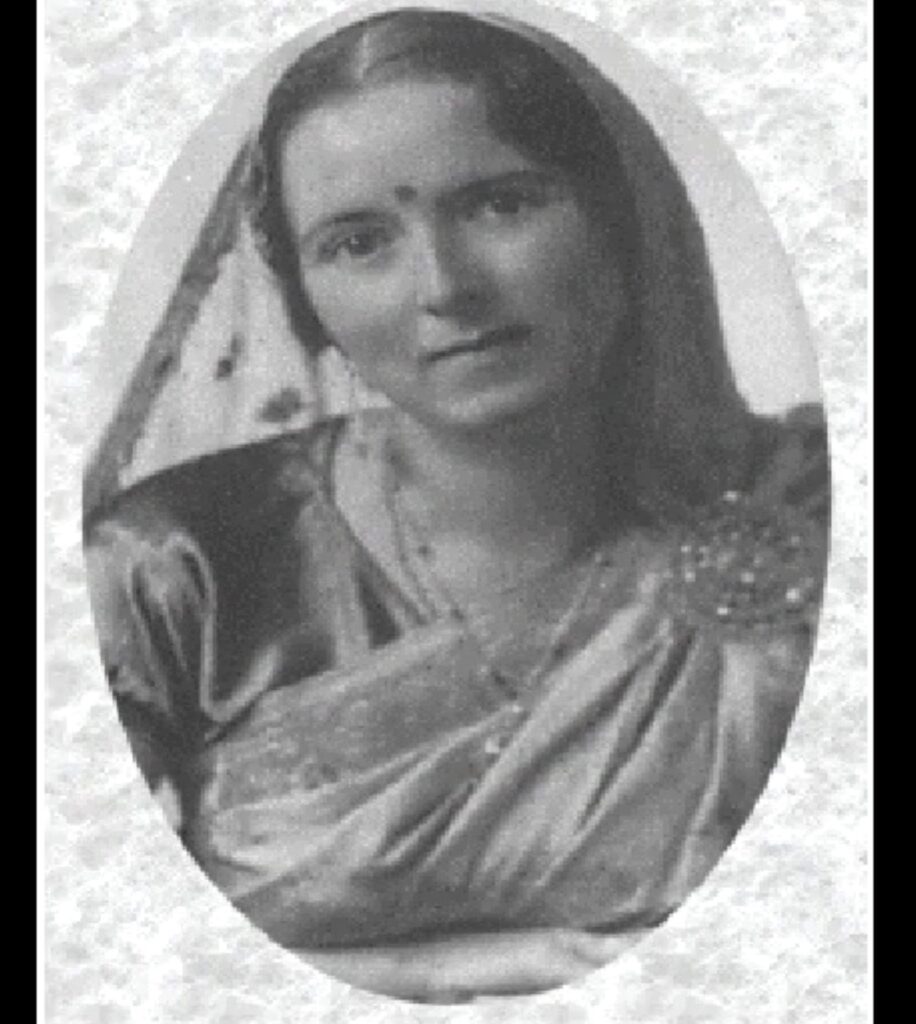
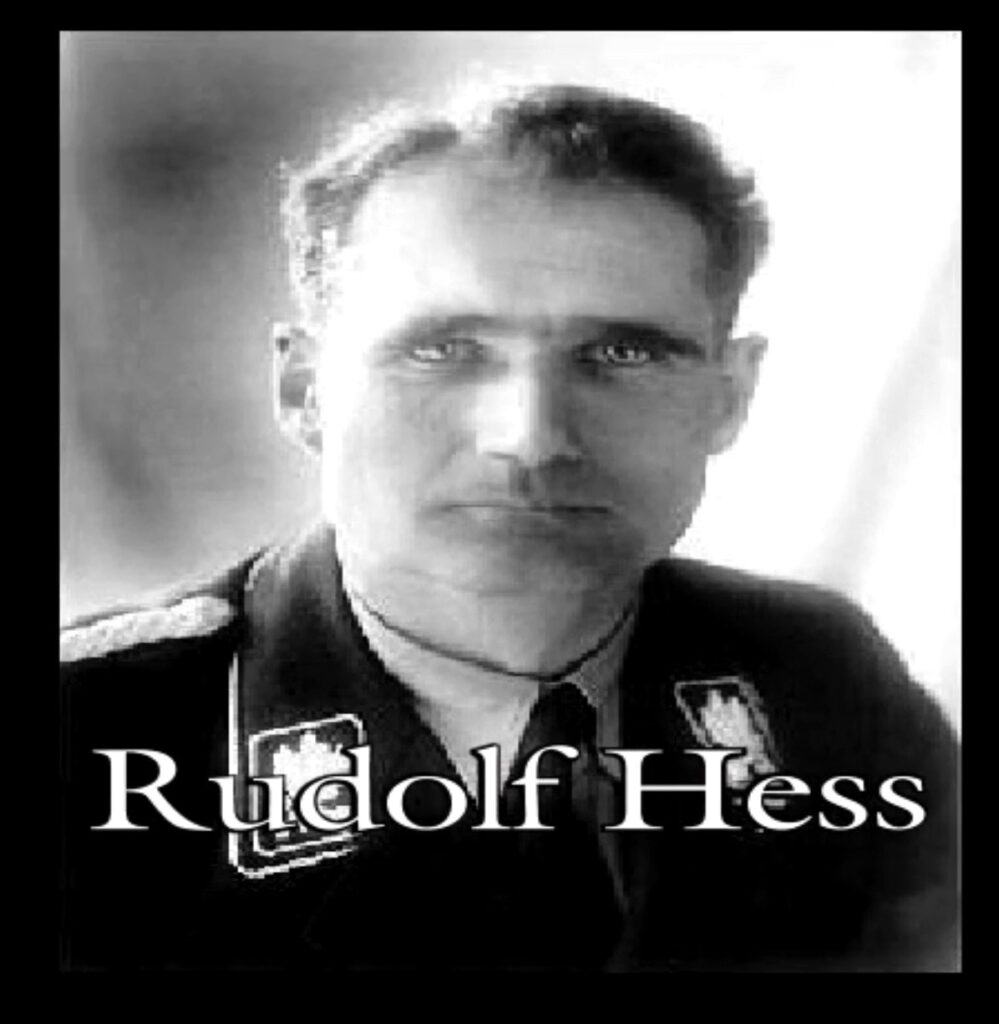
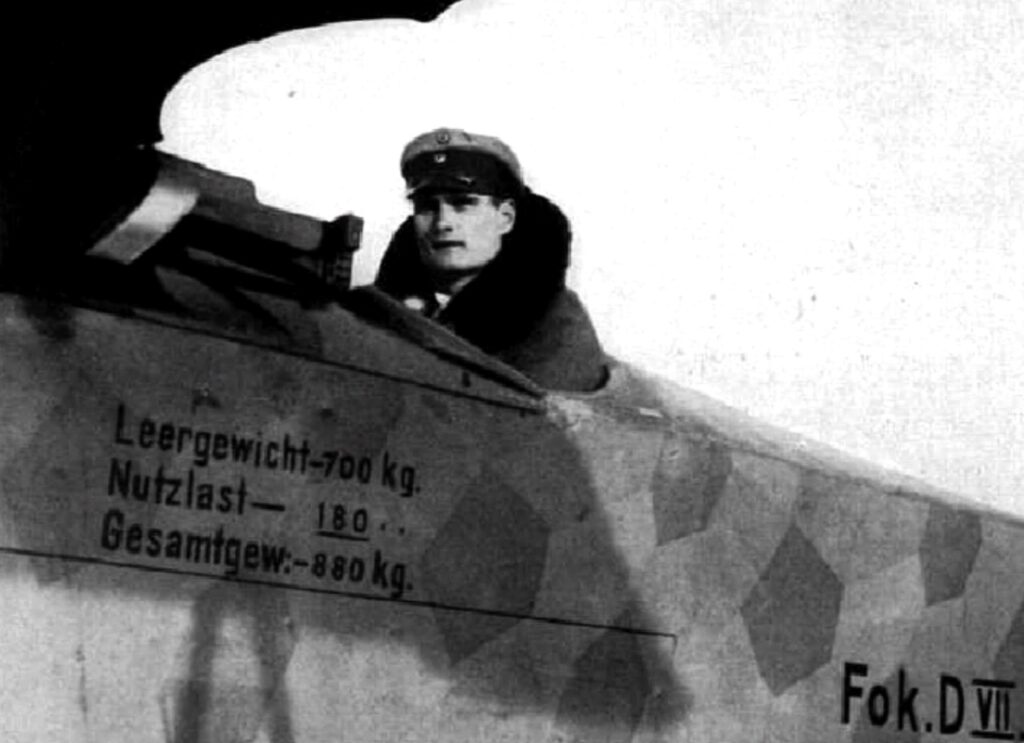
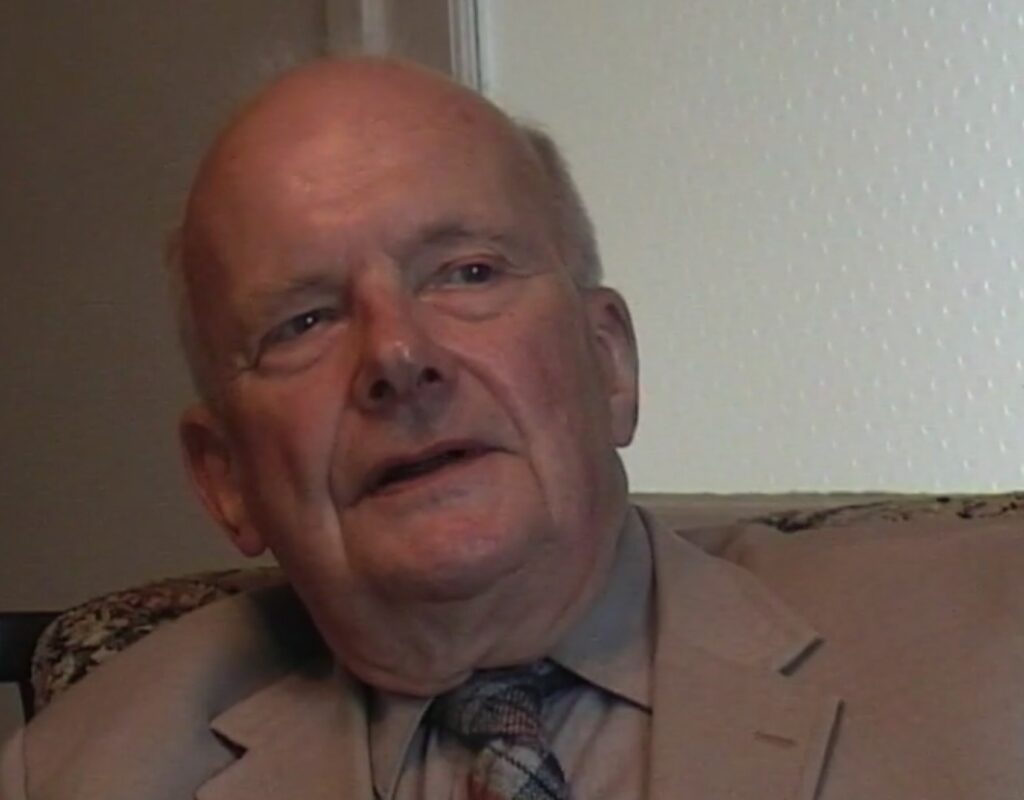
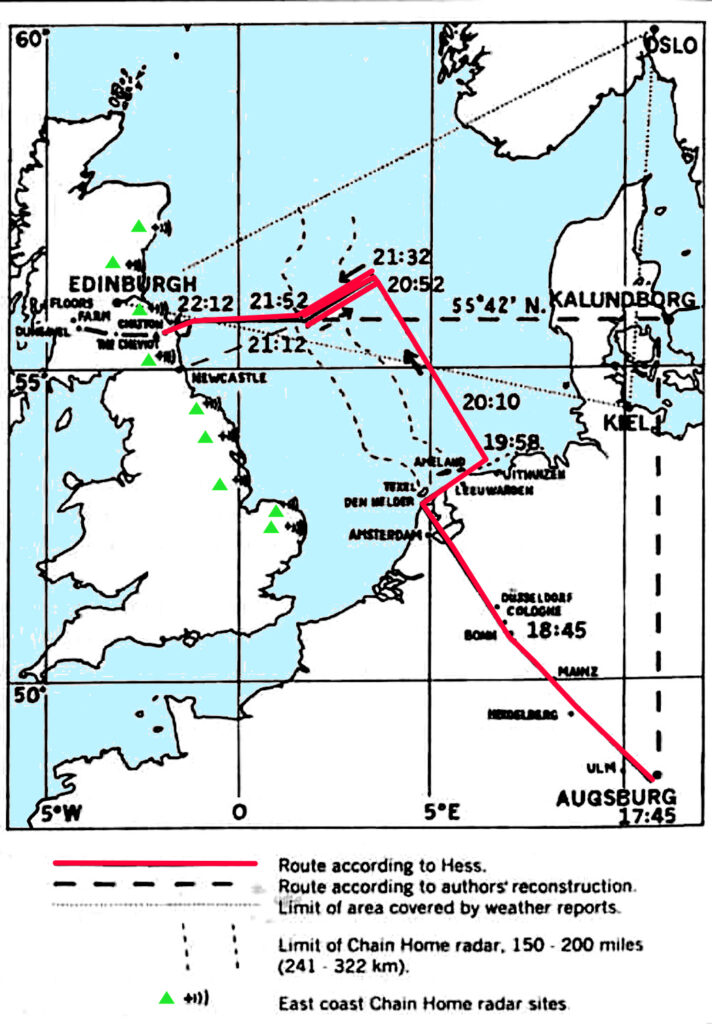

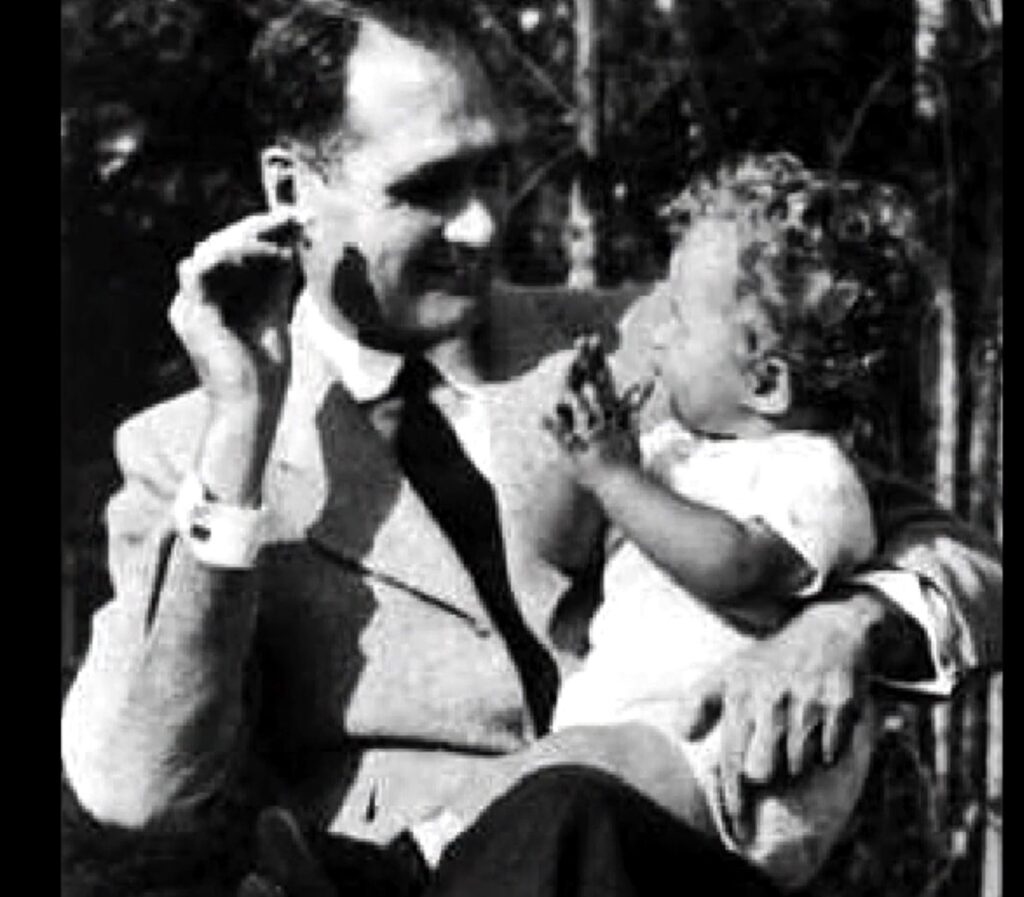

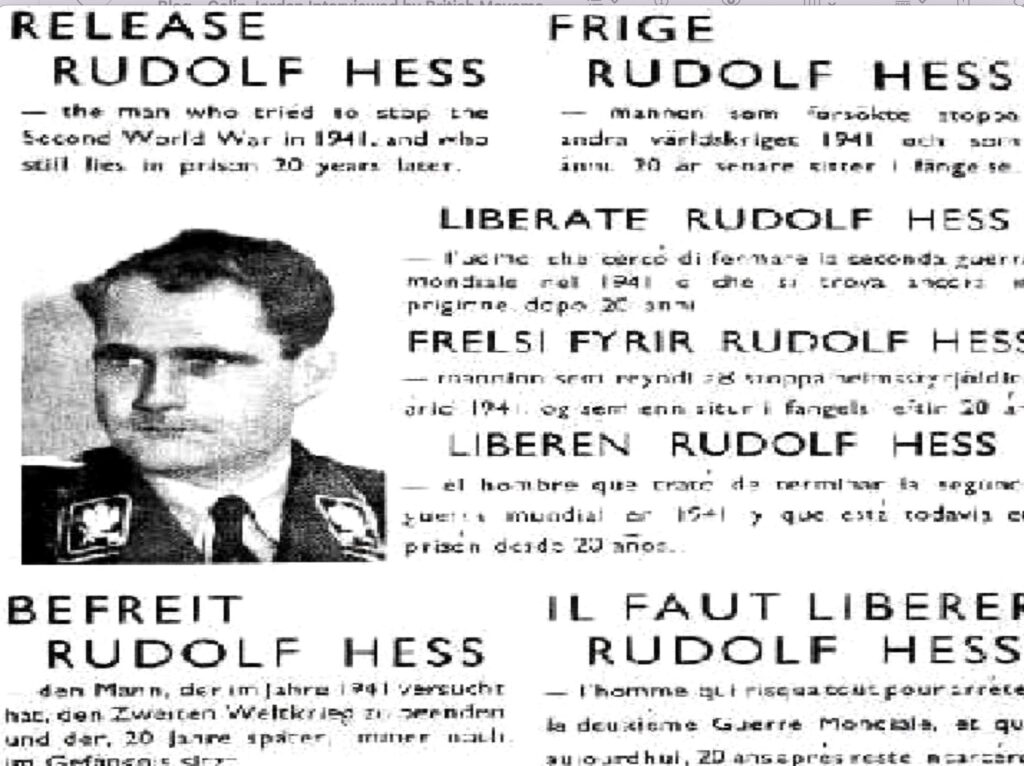
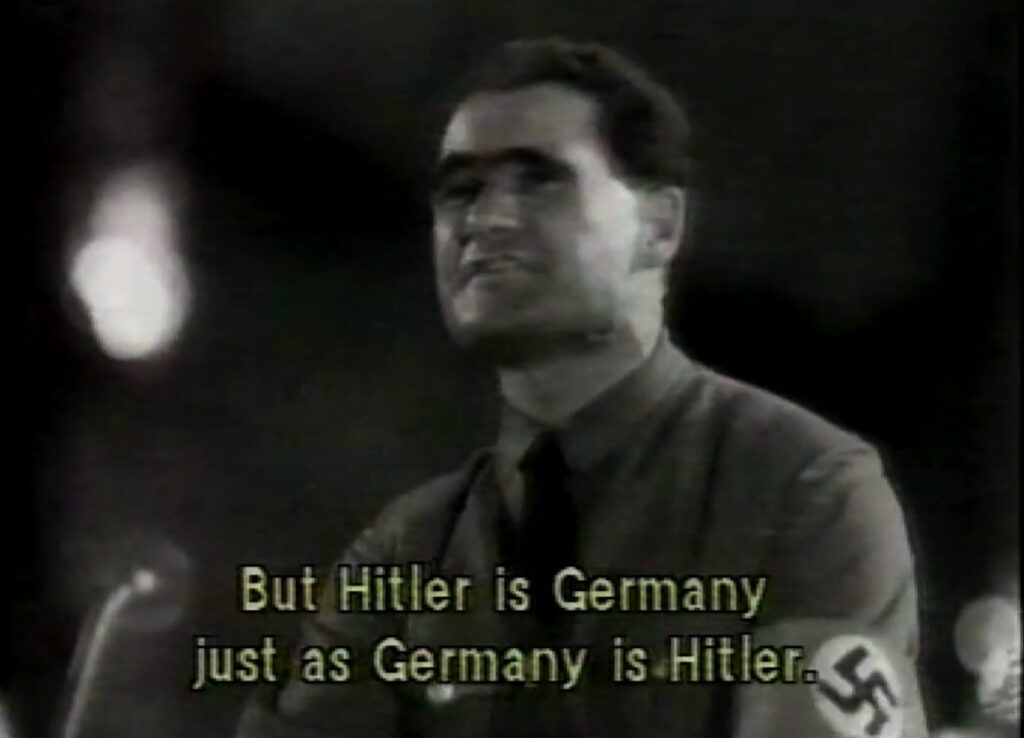

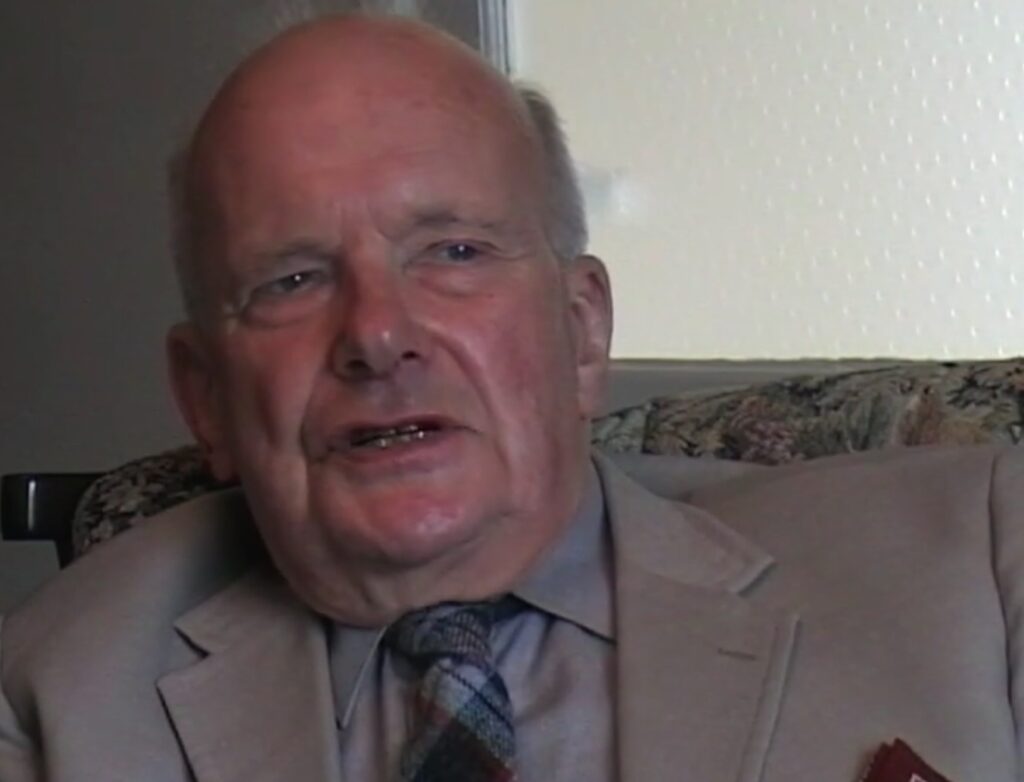
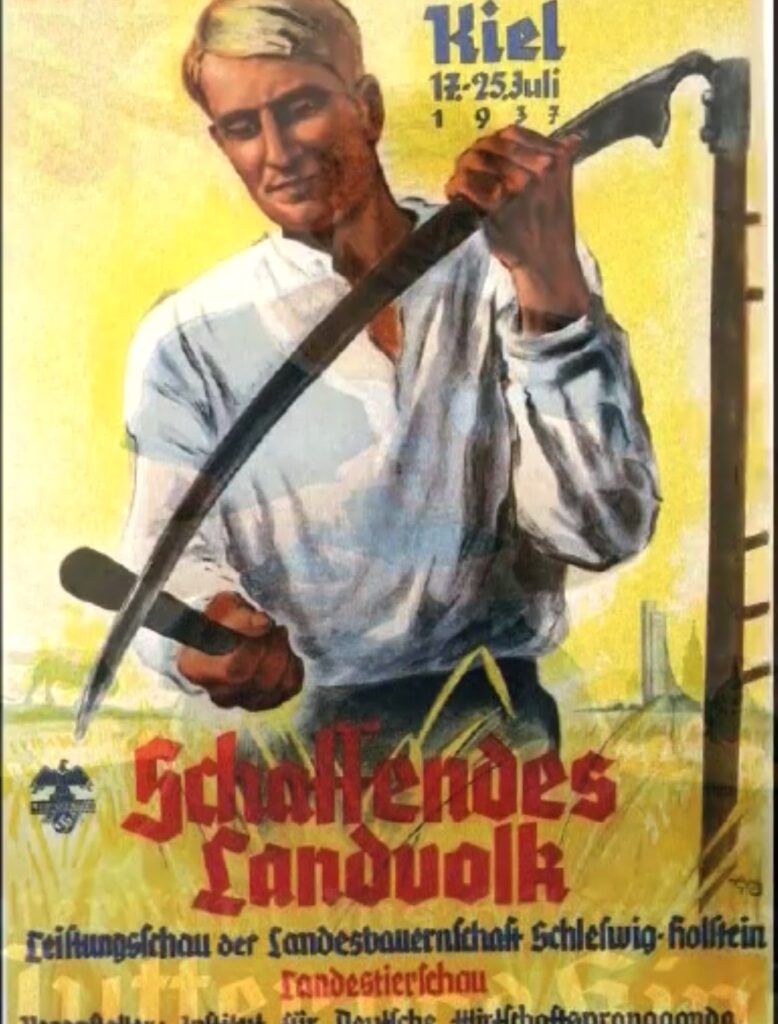
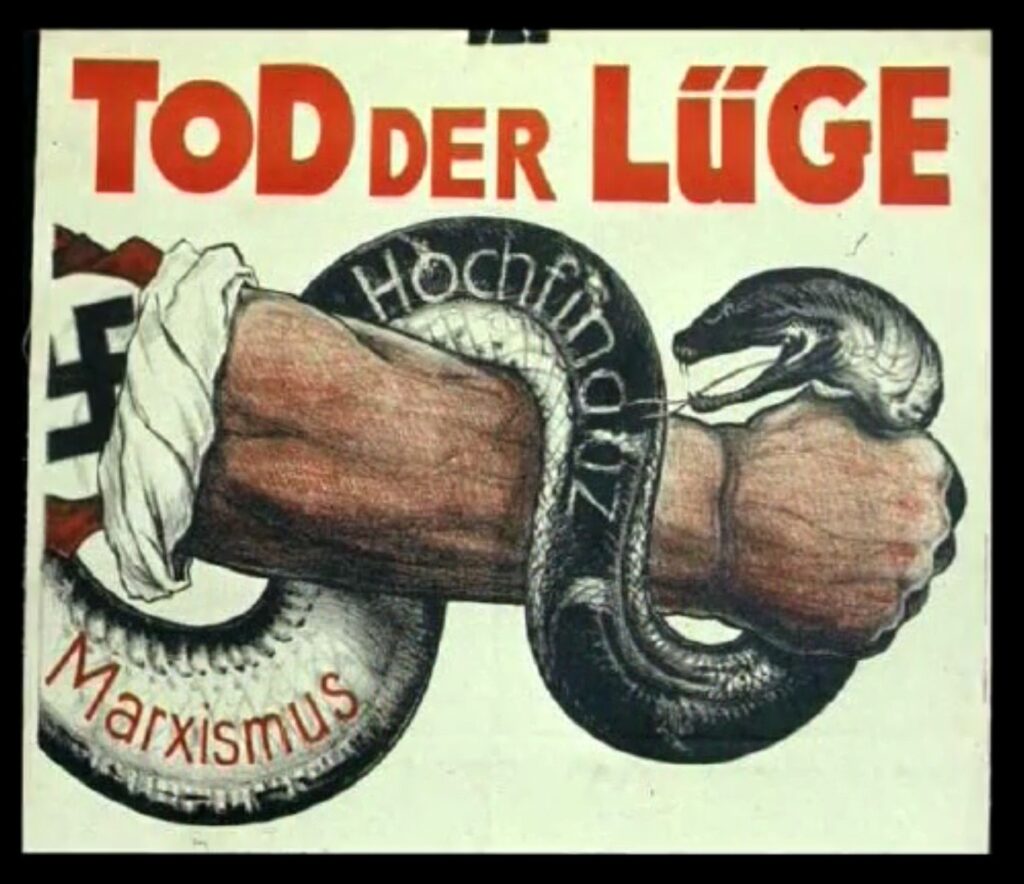
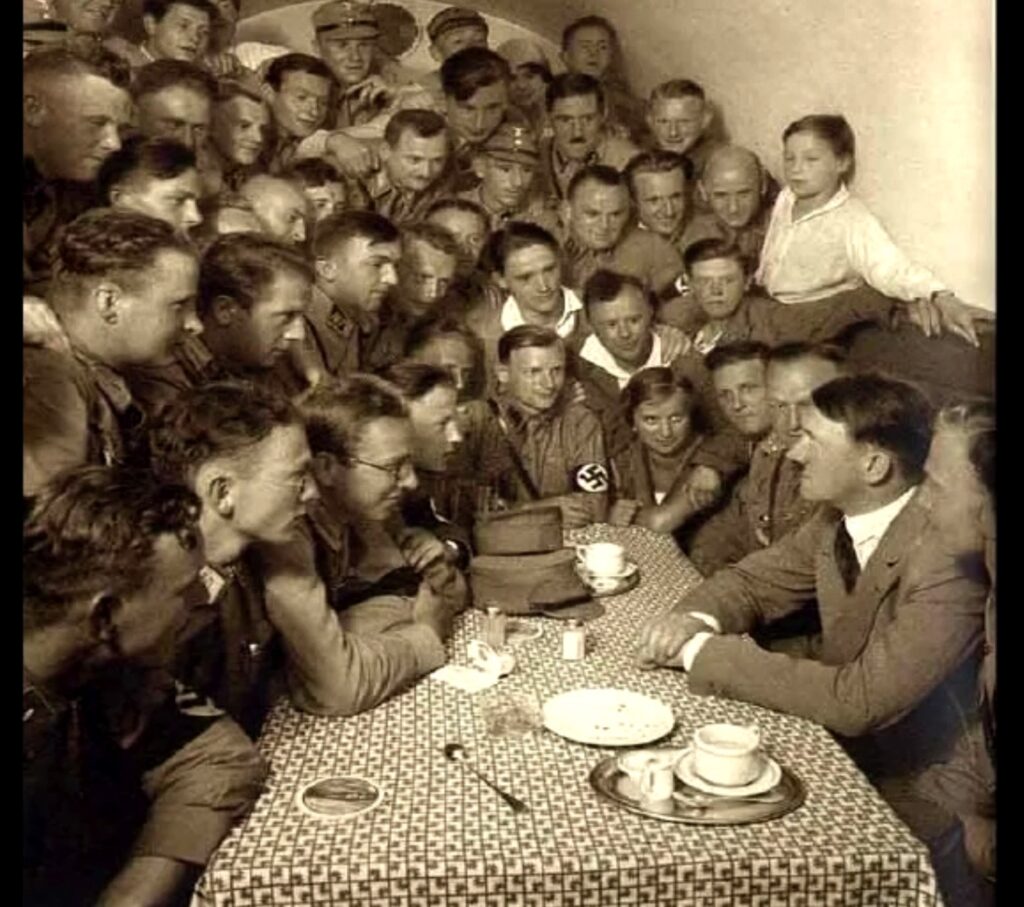
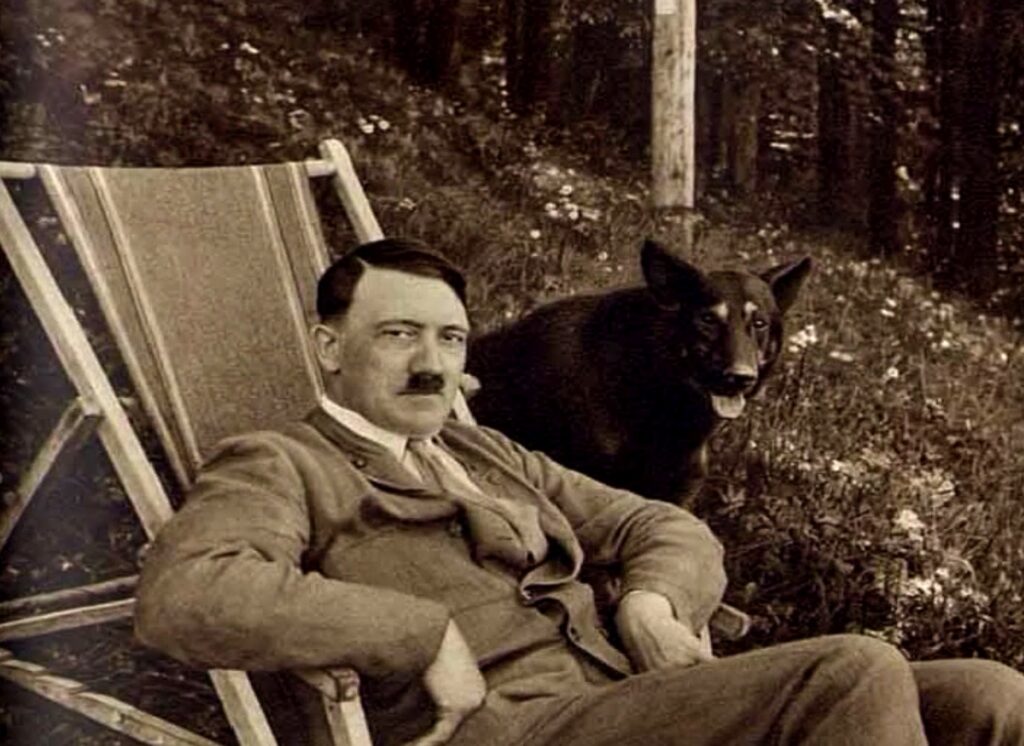
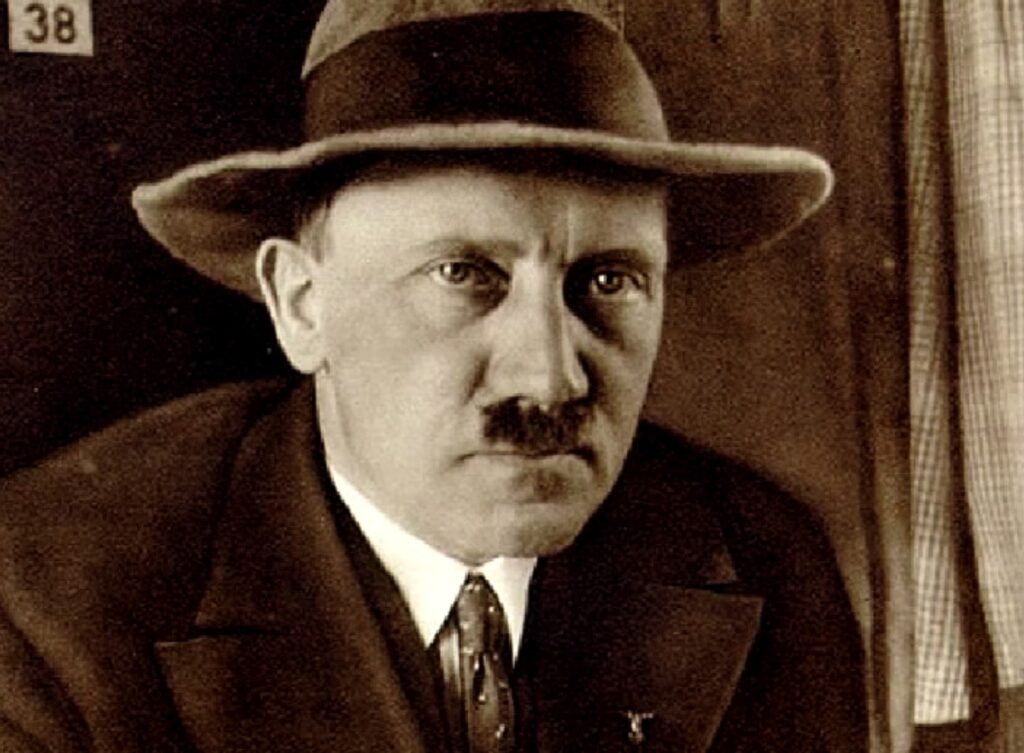
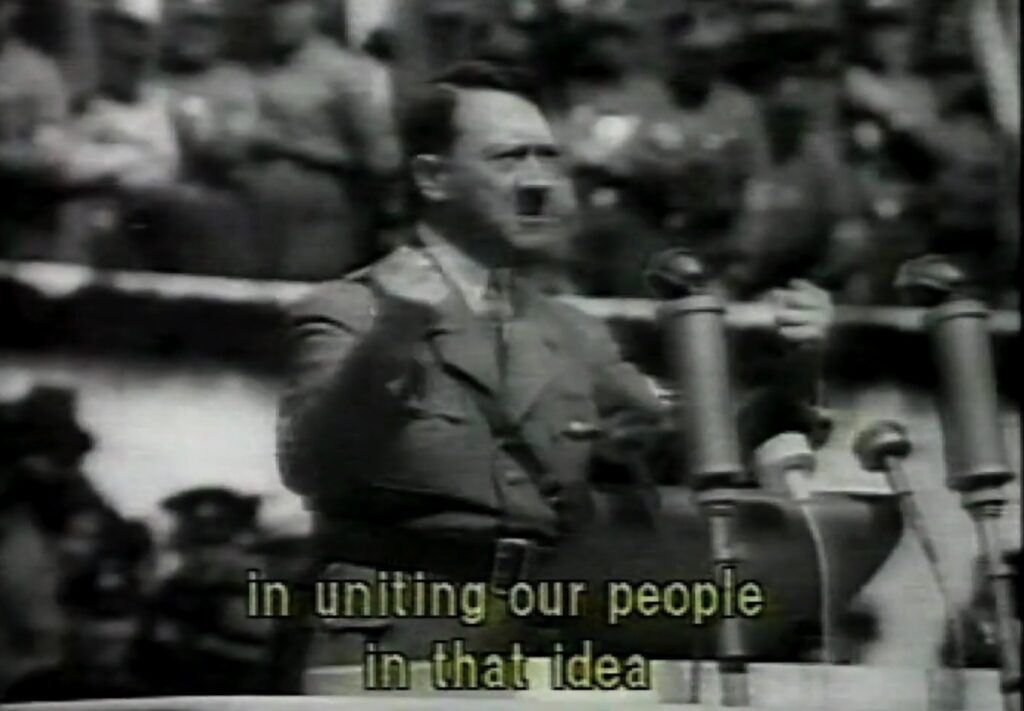
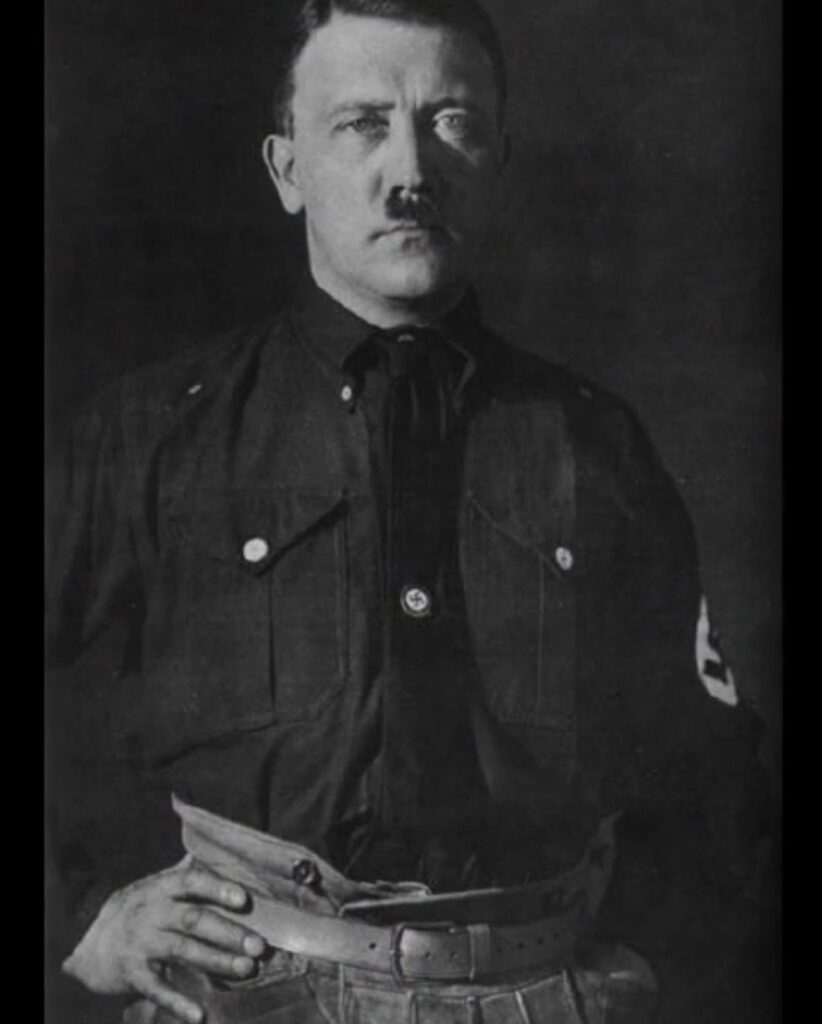
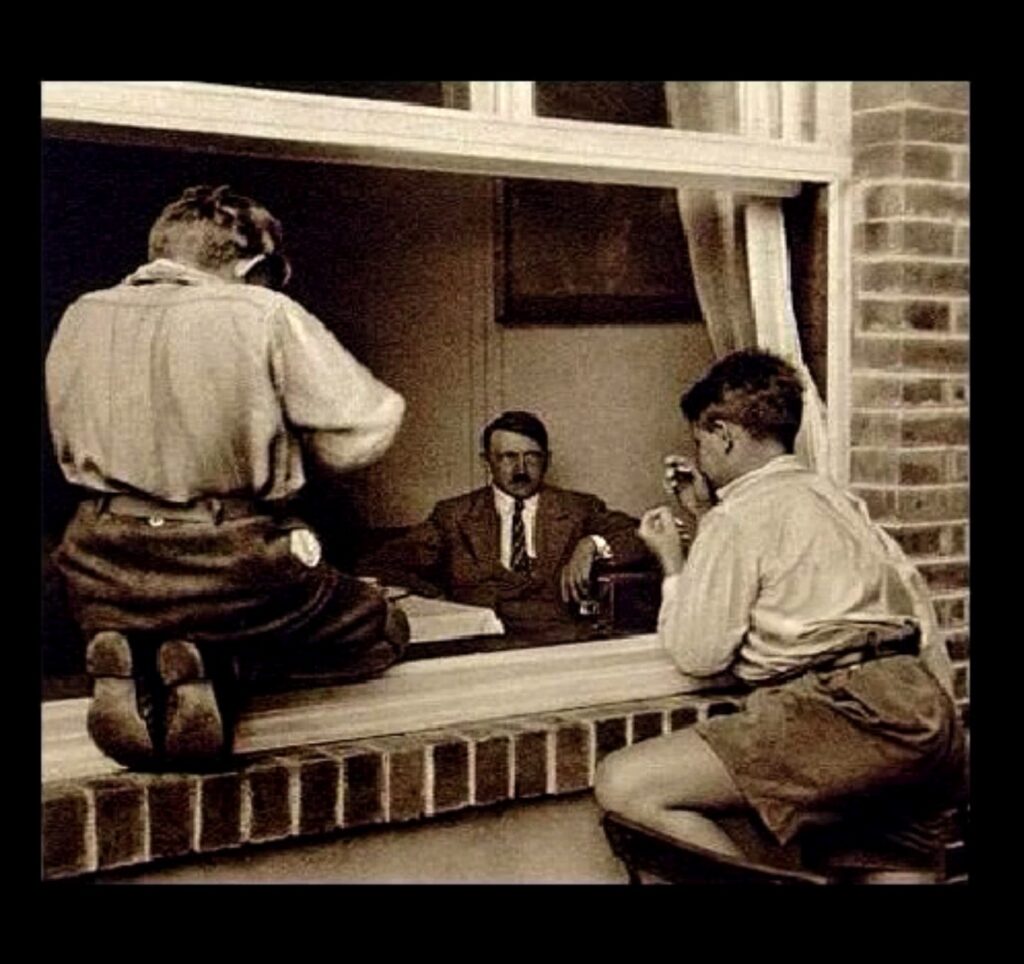
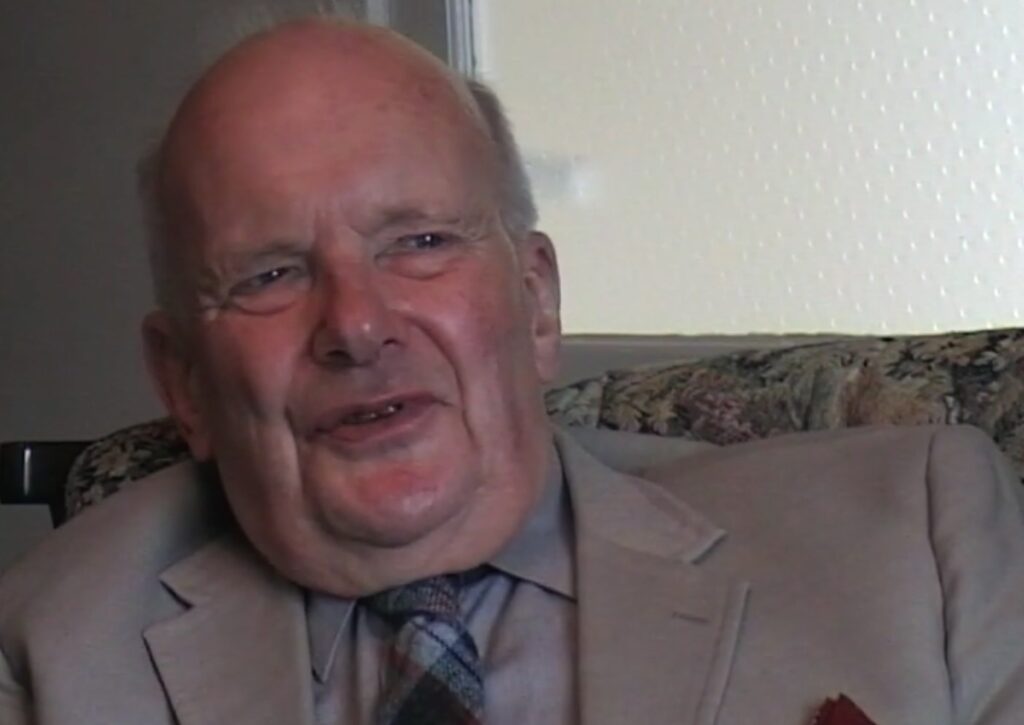
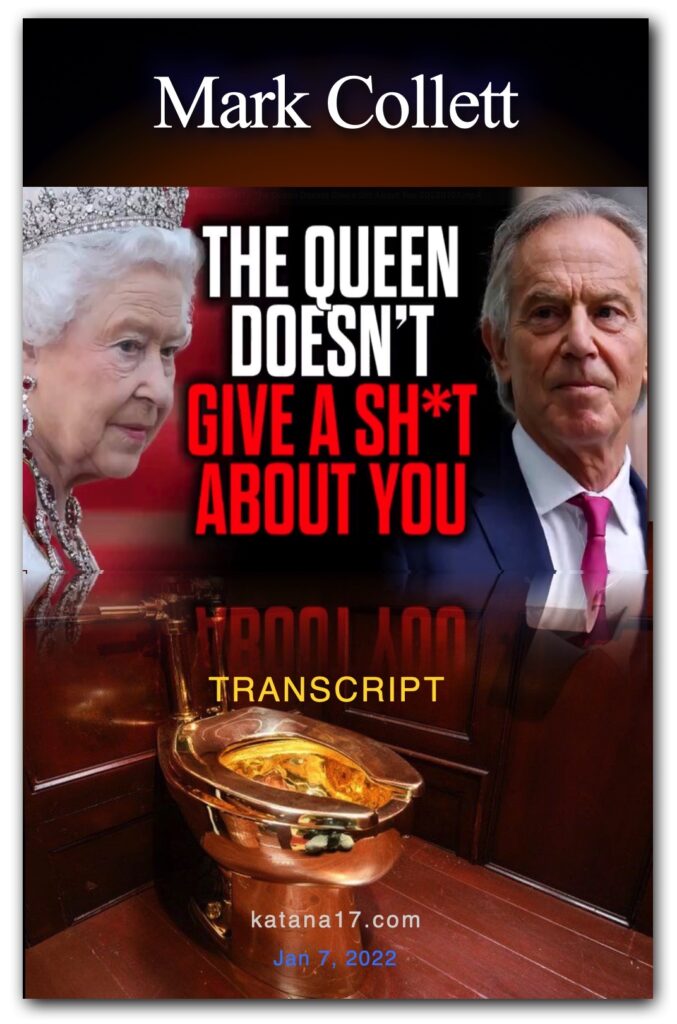
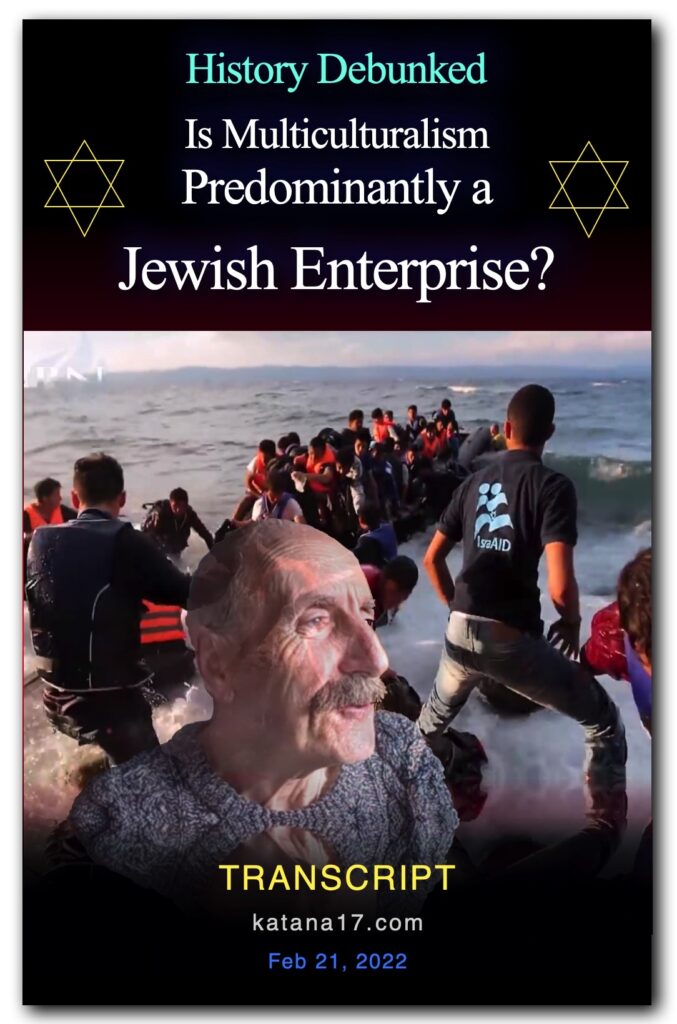
Thank you! I’ll list correctios when I have more time to read later.
First one though is its Denis Pirie, not Dennis Perry. Dennis Perry and Perry are mentioned a few times throughout.
“Roland Kerrichie” should be “Roland Kerr-Ritchie”
One more correction for Perry to Pirie to be made, “But he let Perry carry on.”
Thanks for those corrections. BTW, Happy New Year English Gent!
Where you write,
“Jordan asked for [word unclear], head of the jewish community.”
Should be,
“Jordan asked for subpoena against head of the jewish community.”
And a fantastic new year to you, too!
Gylenburg should be Gailenberg (2 corrections needed)
Ami Anwar should be Aamer Anwar (this refers to the whole story: https://knowledgeispower.life/smashing-the-peace-stone-by-colin-jordan-1999/)
“Unfortunately, Sanderson”, I believe where you have written Sanderson should be “his son”
Okay, I’ve made those corrections. If you spot anything else, or have any additions, please let me know.
“That I am absolutely persuaded!”
Should be
“Of that I am absolutely persuaded!”
“That in itself, I’m firmly convinced”
Should be
“That in itself, I am firmly convinced”
Am I being too picky here? Sorry.
No, being picky is good!
Britain’s Publishing Society should be Britons Publishing Society.
Nottinghill should be Notting Hill
This week I’ll going through everything and just drop it all here rather than these separate posts.
Pingback: David Frost – Interview with Oswald Mosley – Nov 15, 1967 – Transcript | katana17